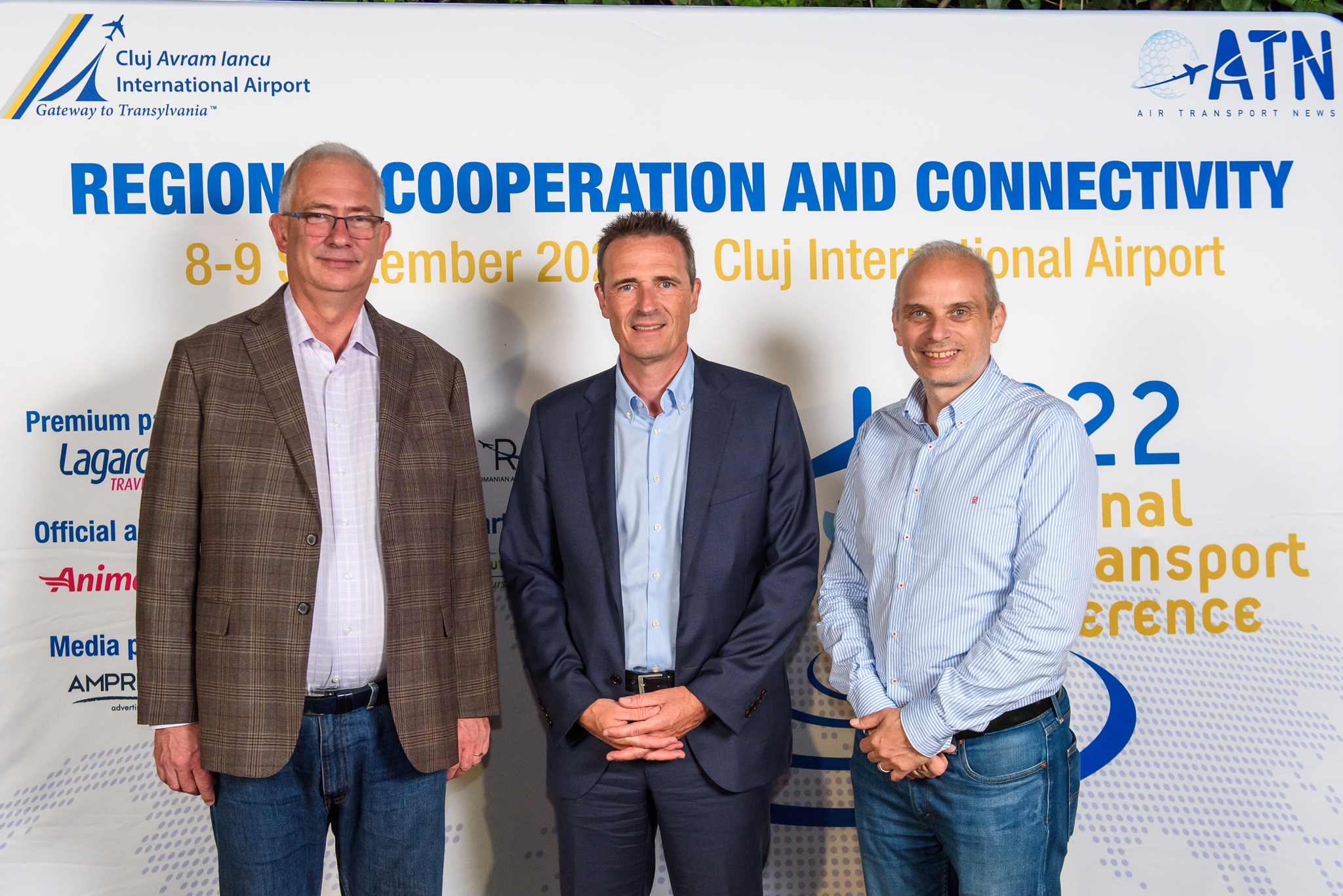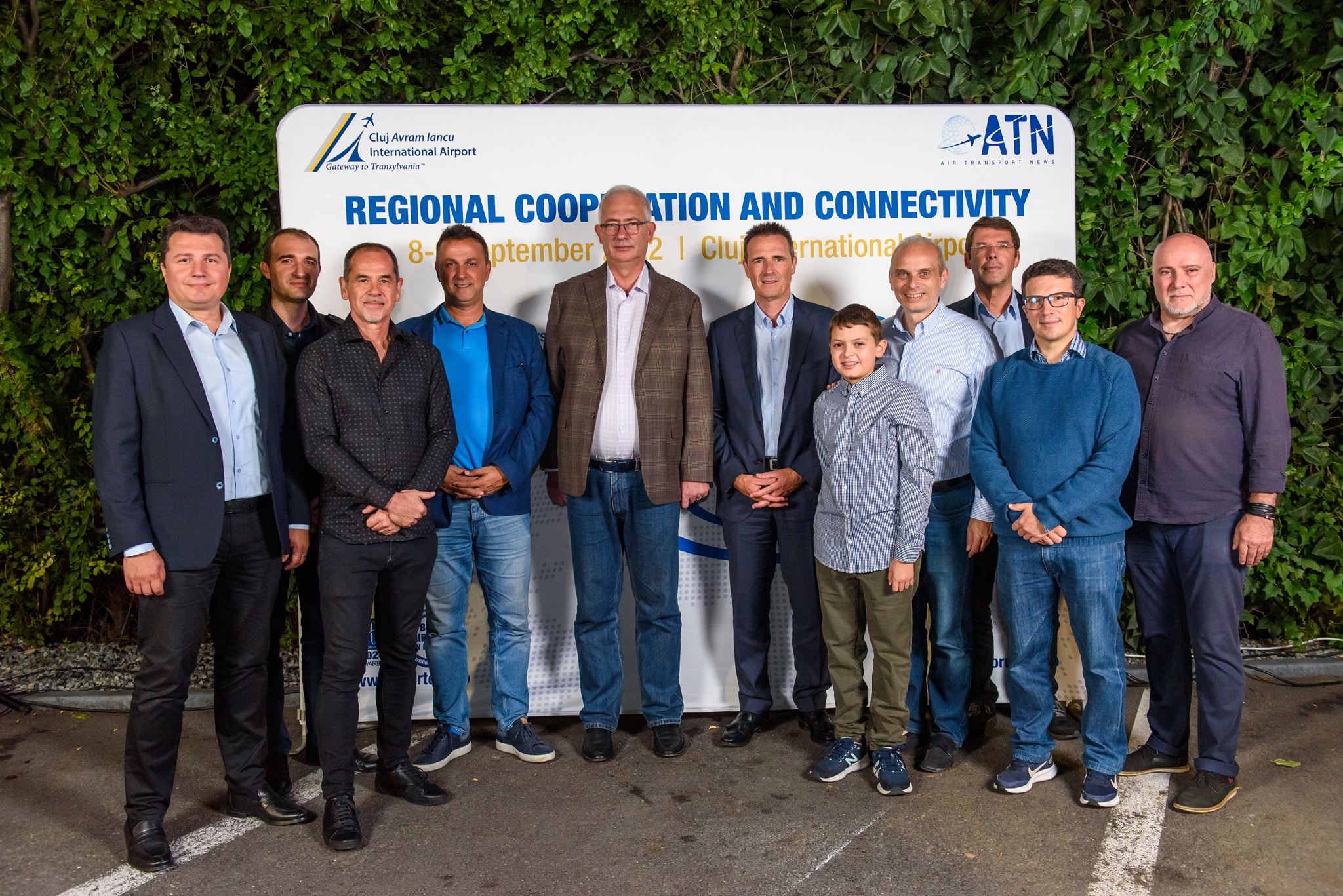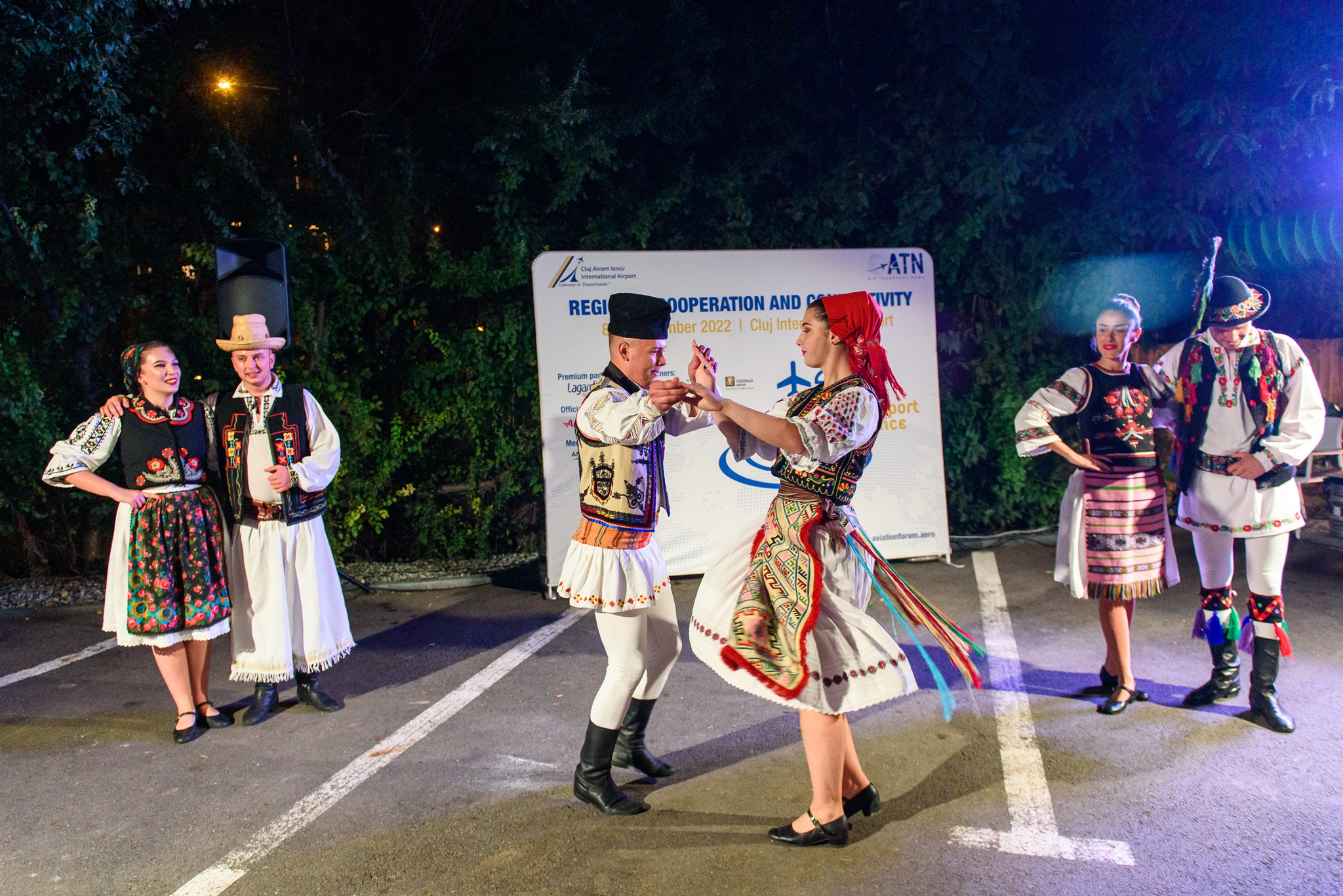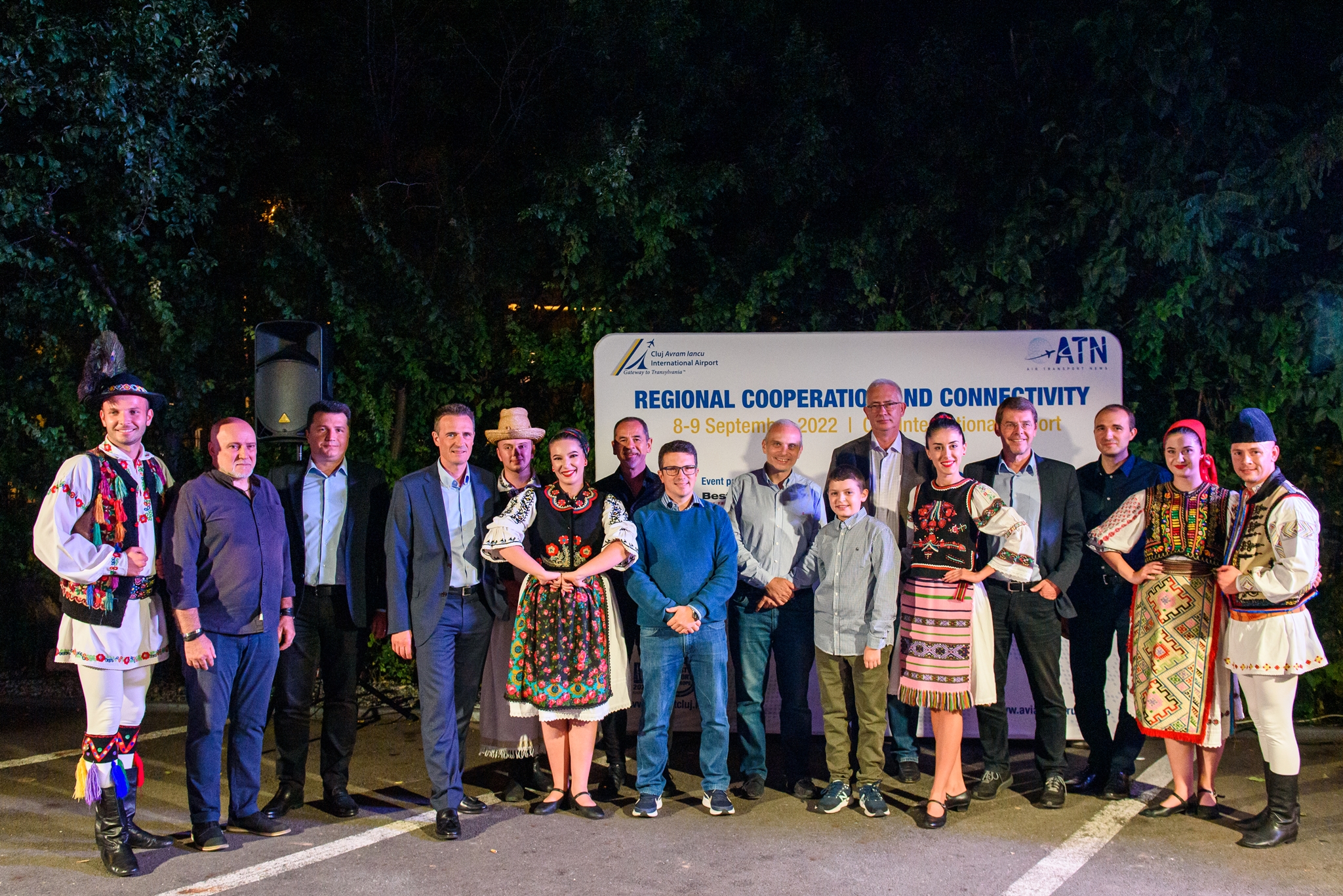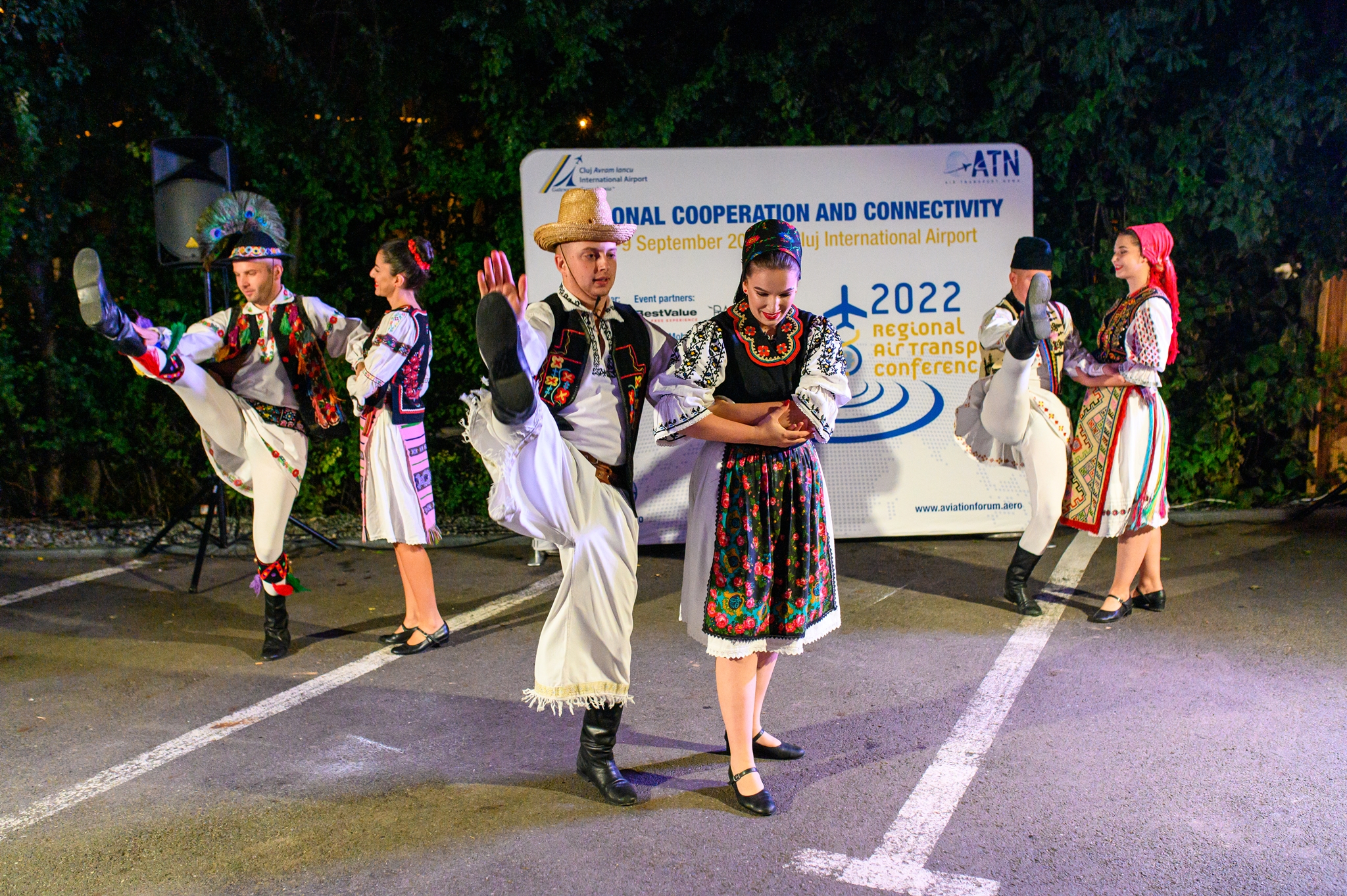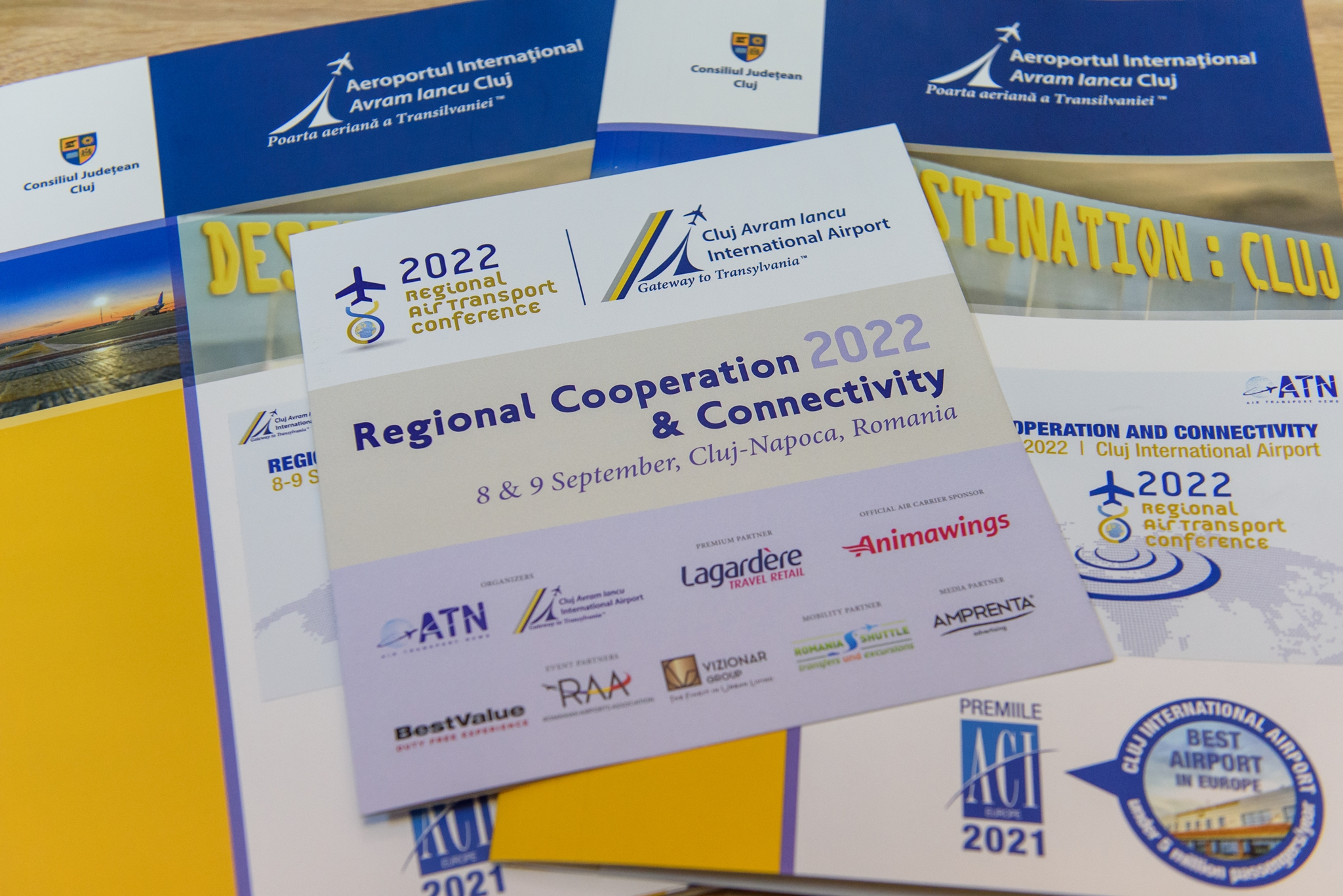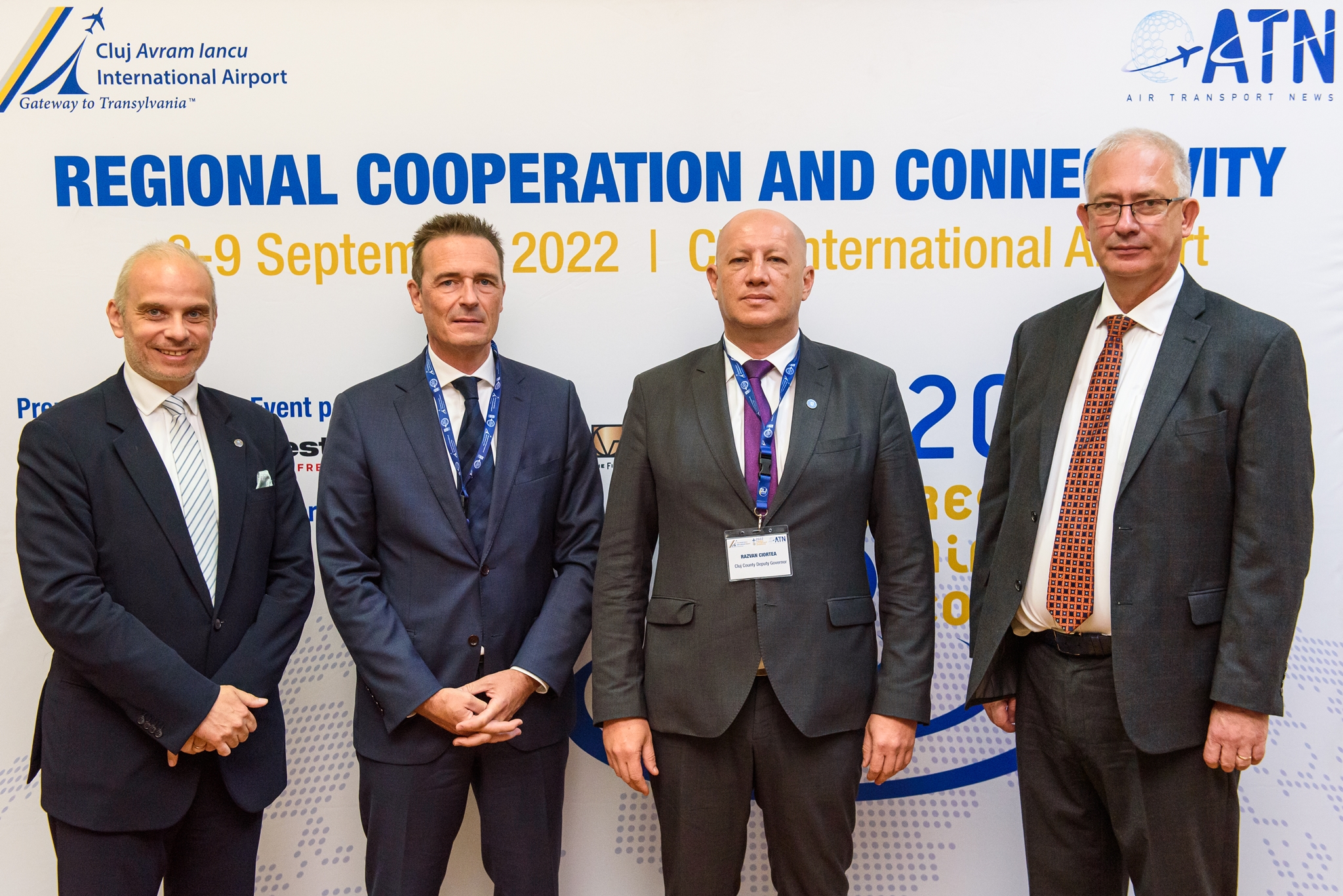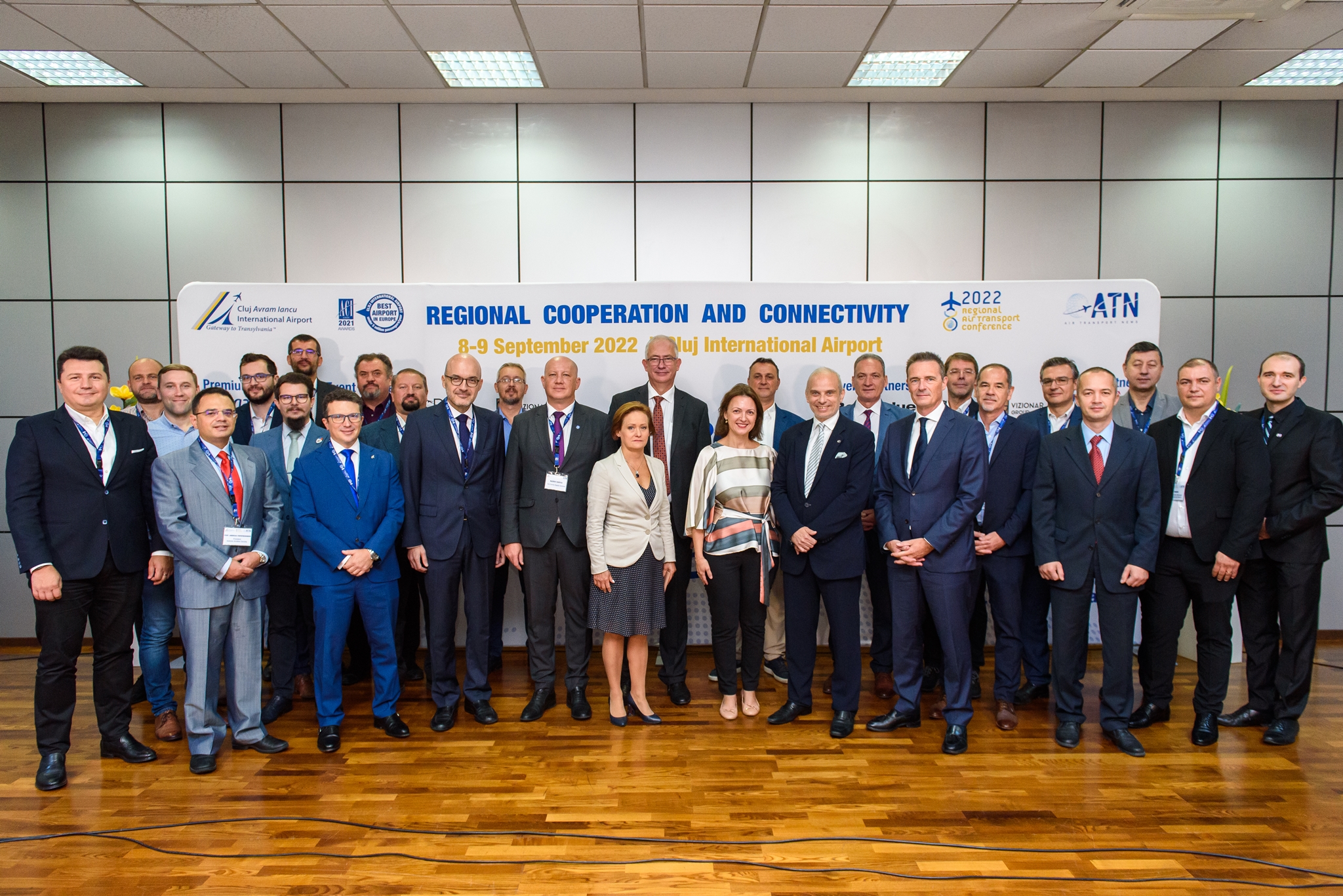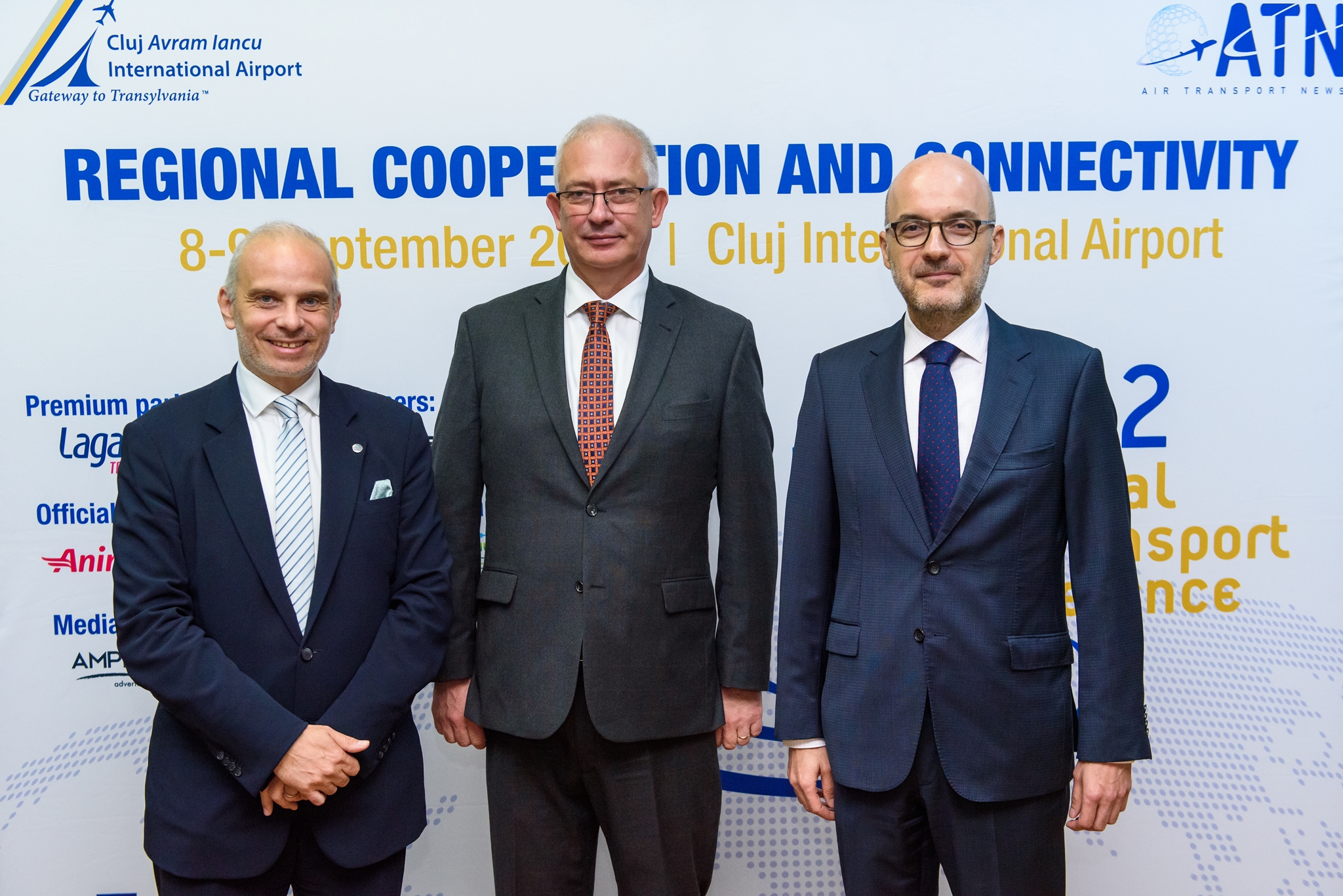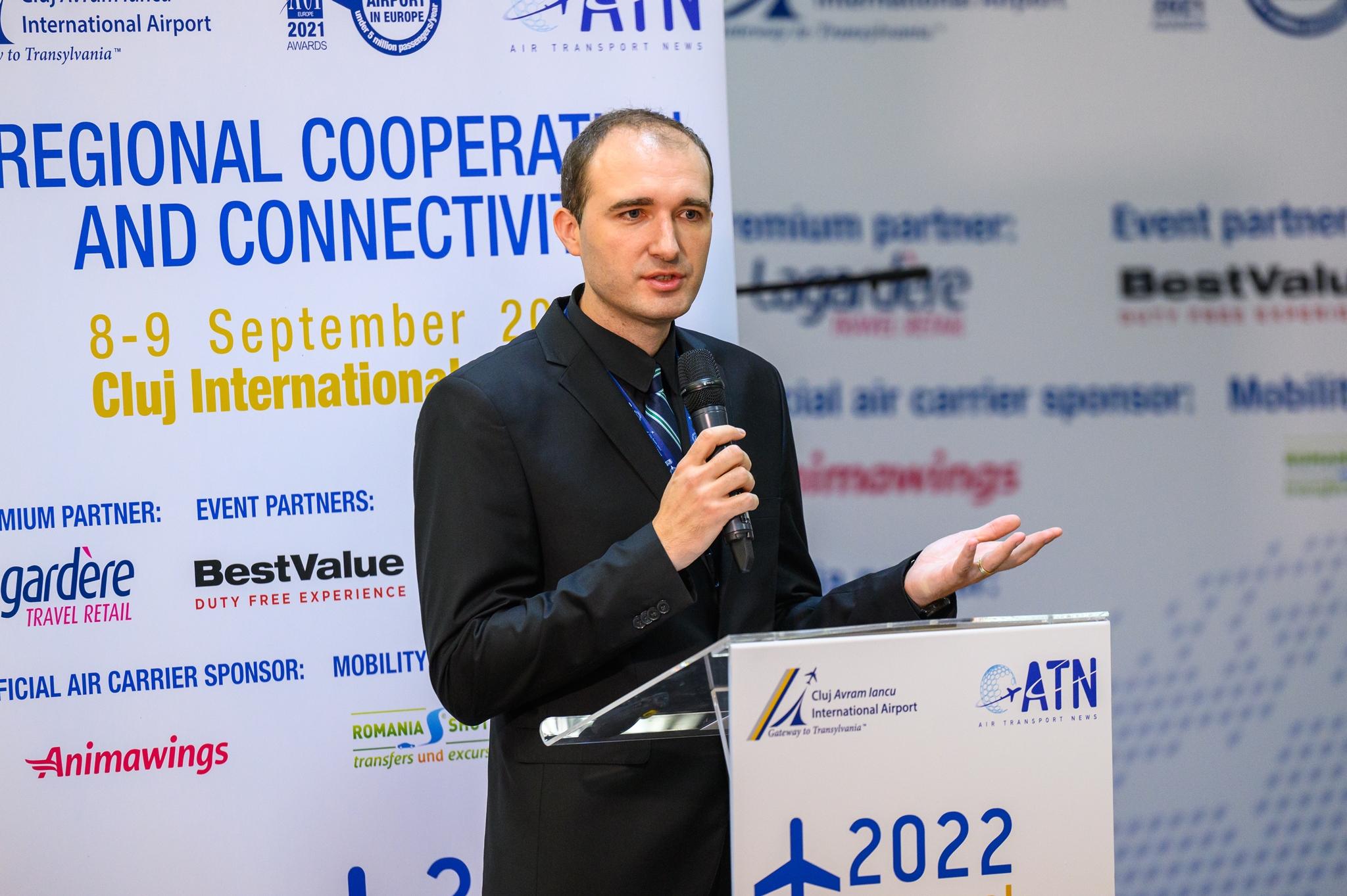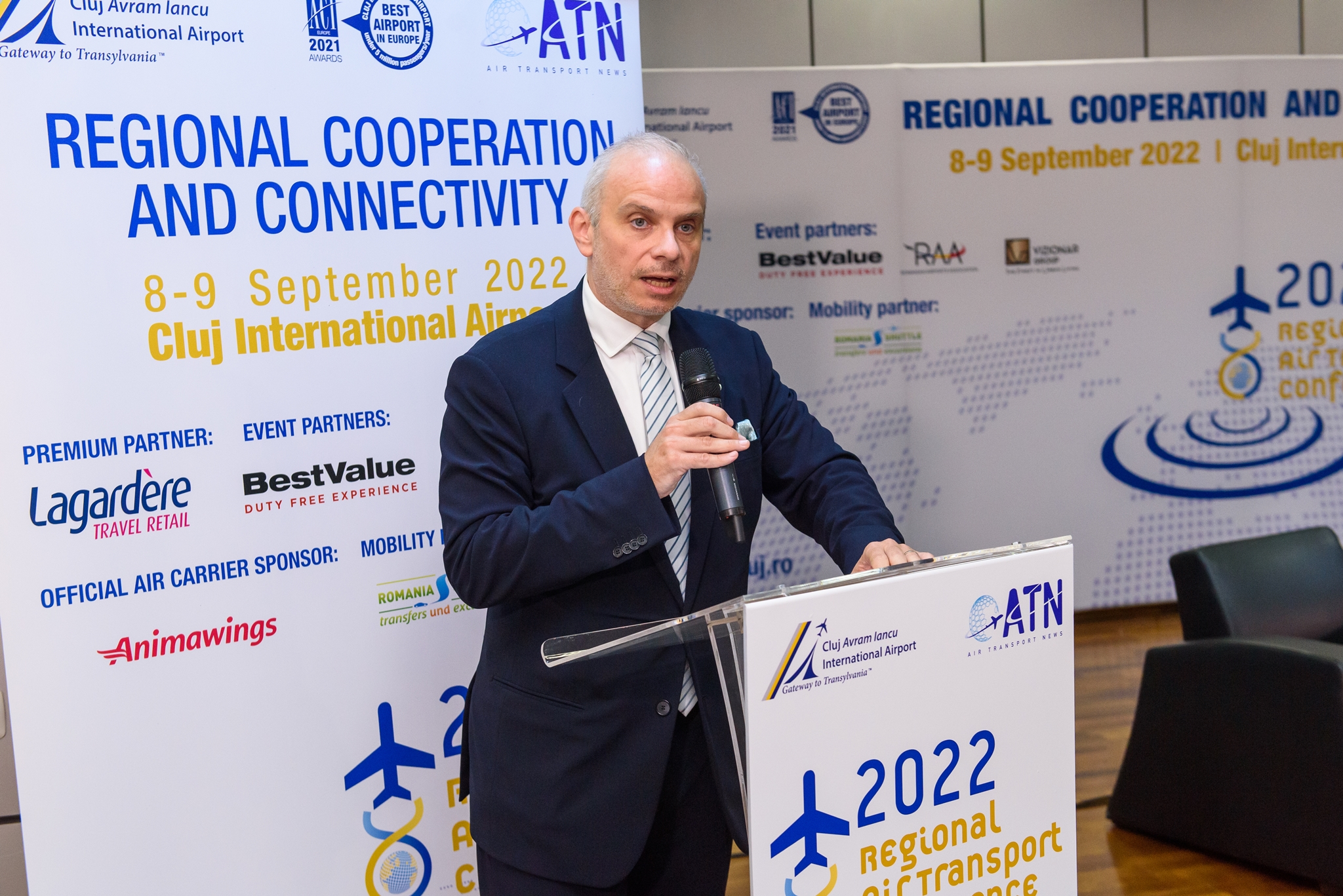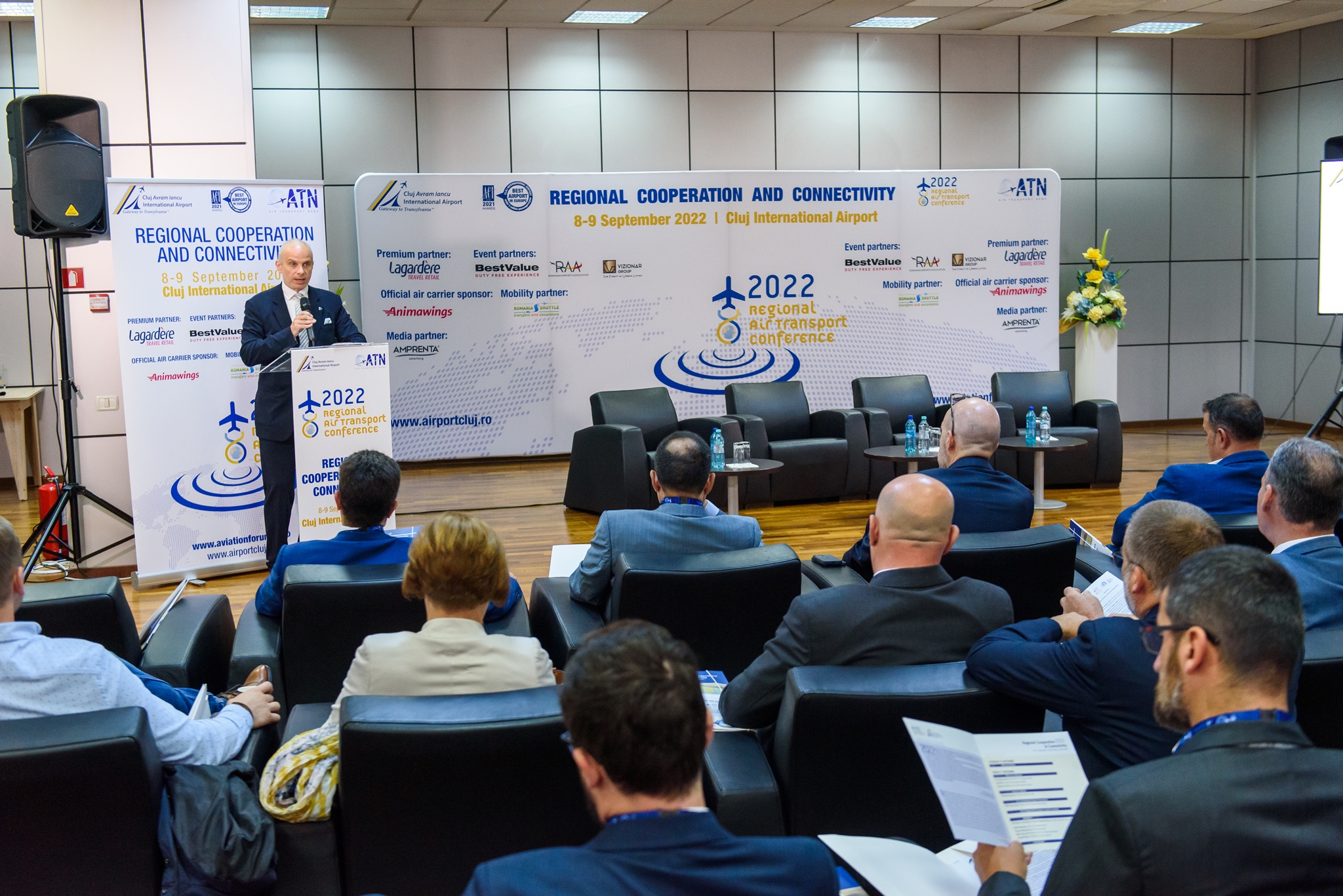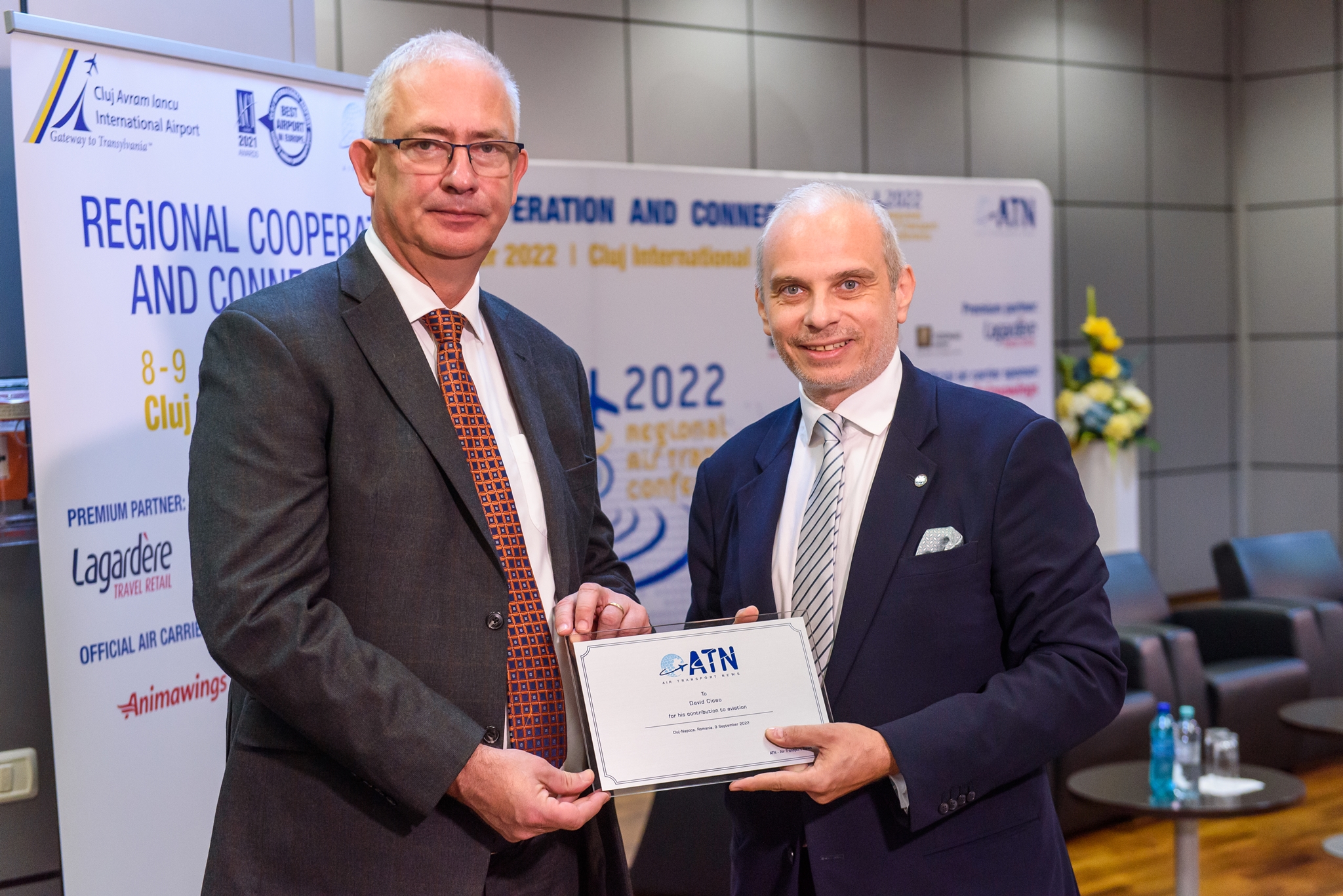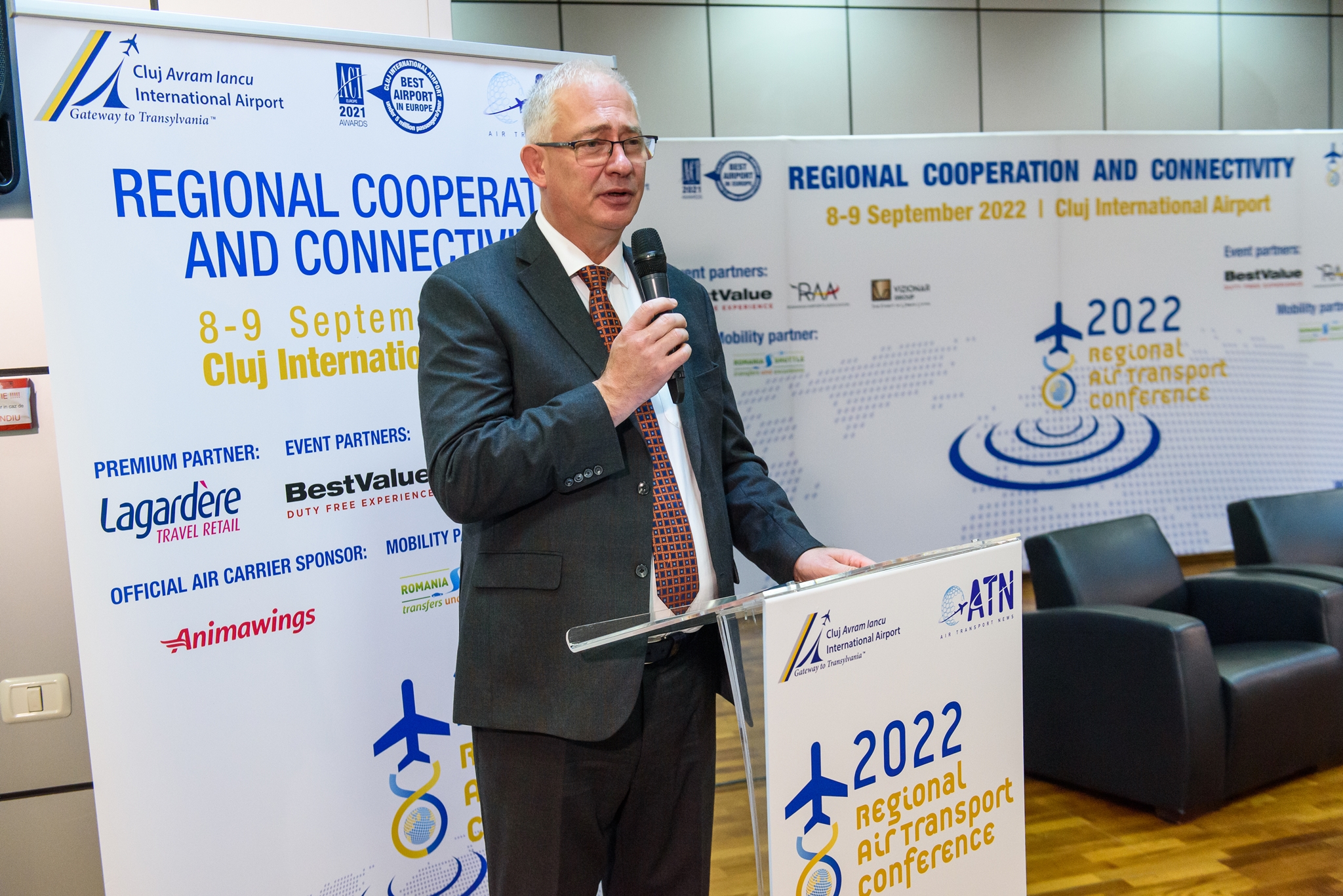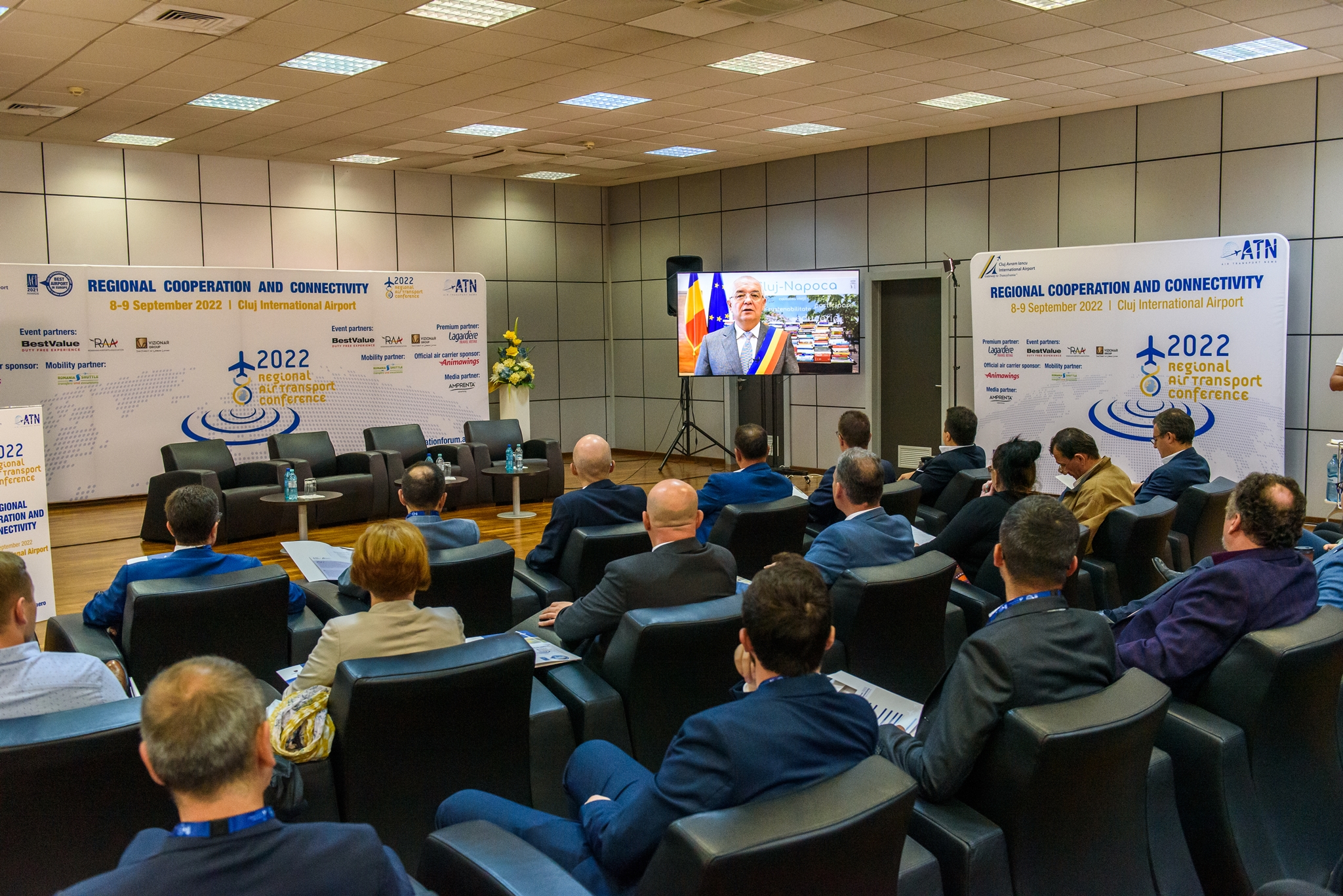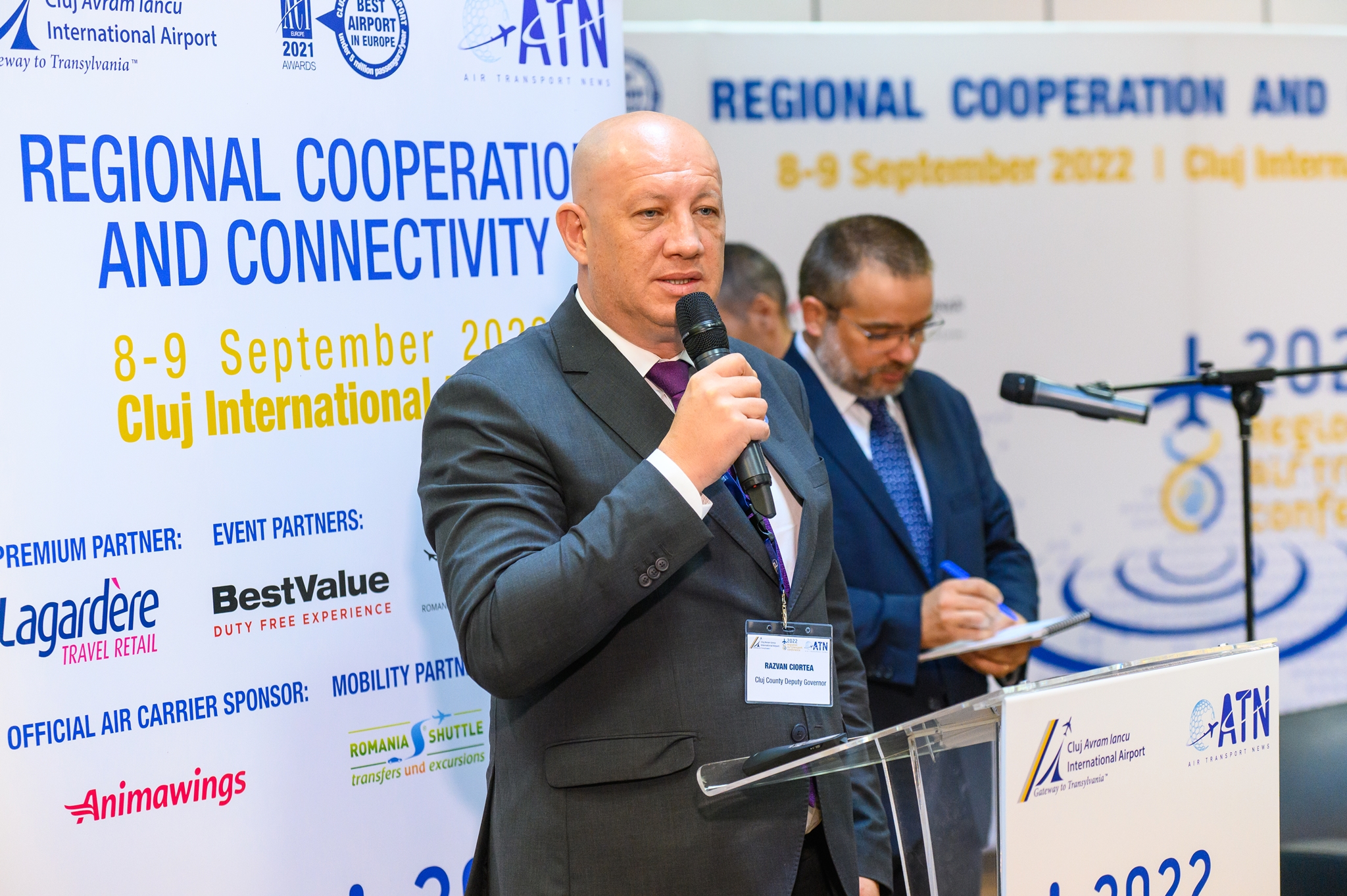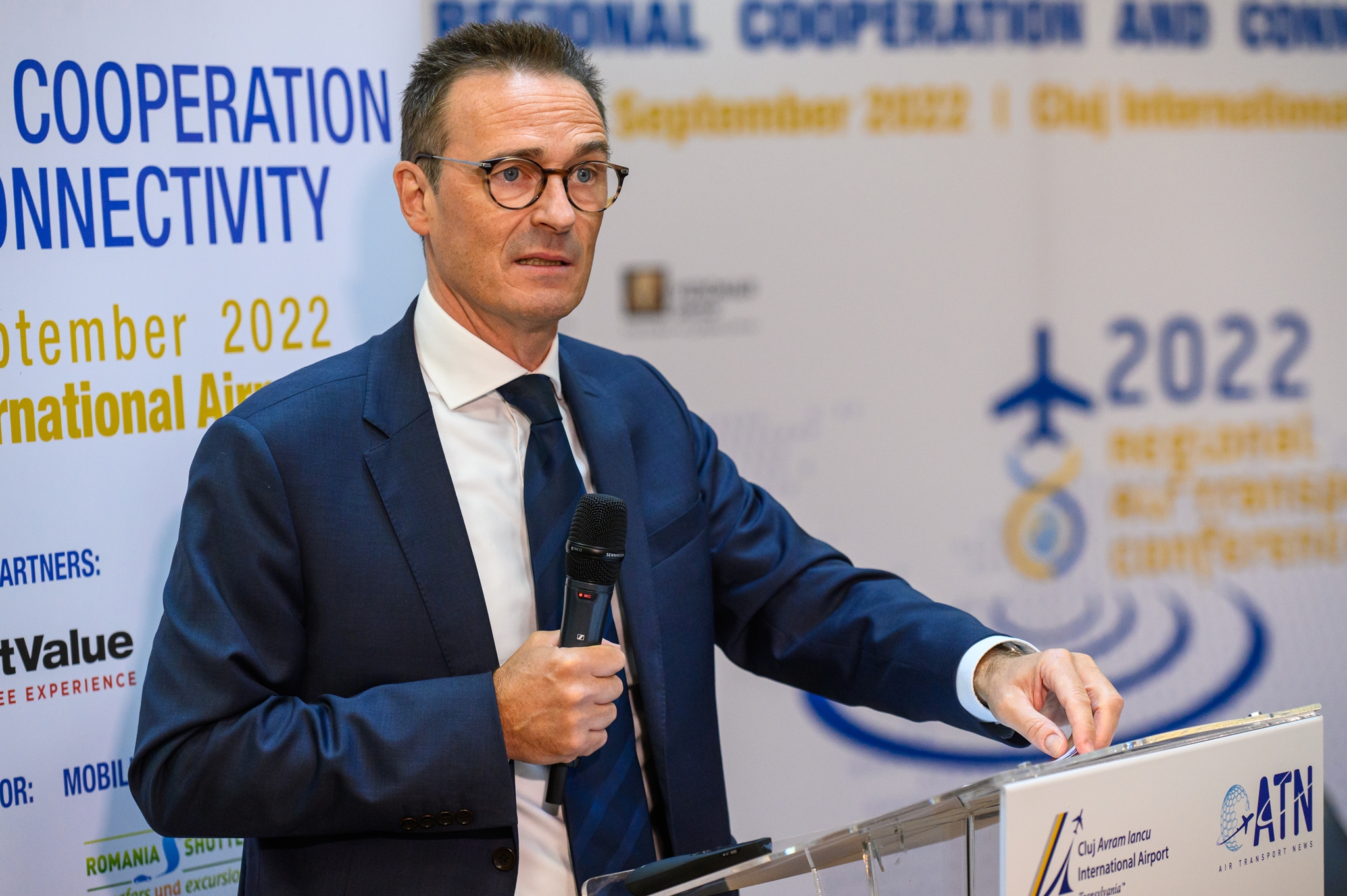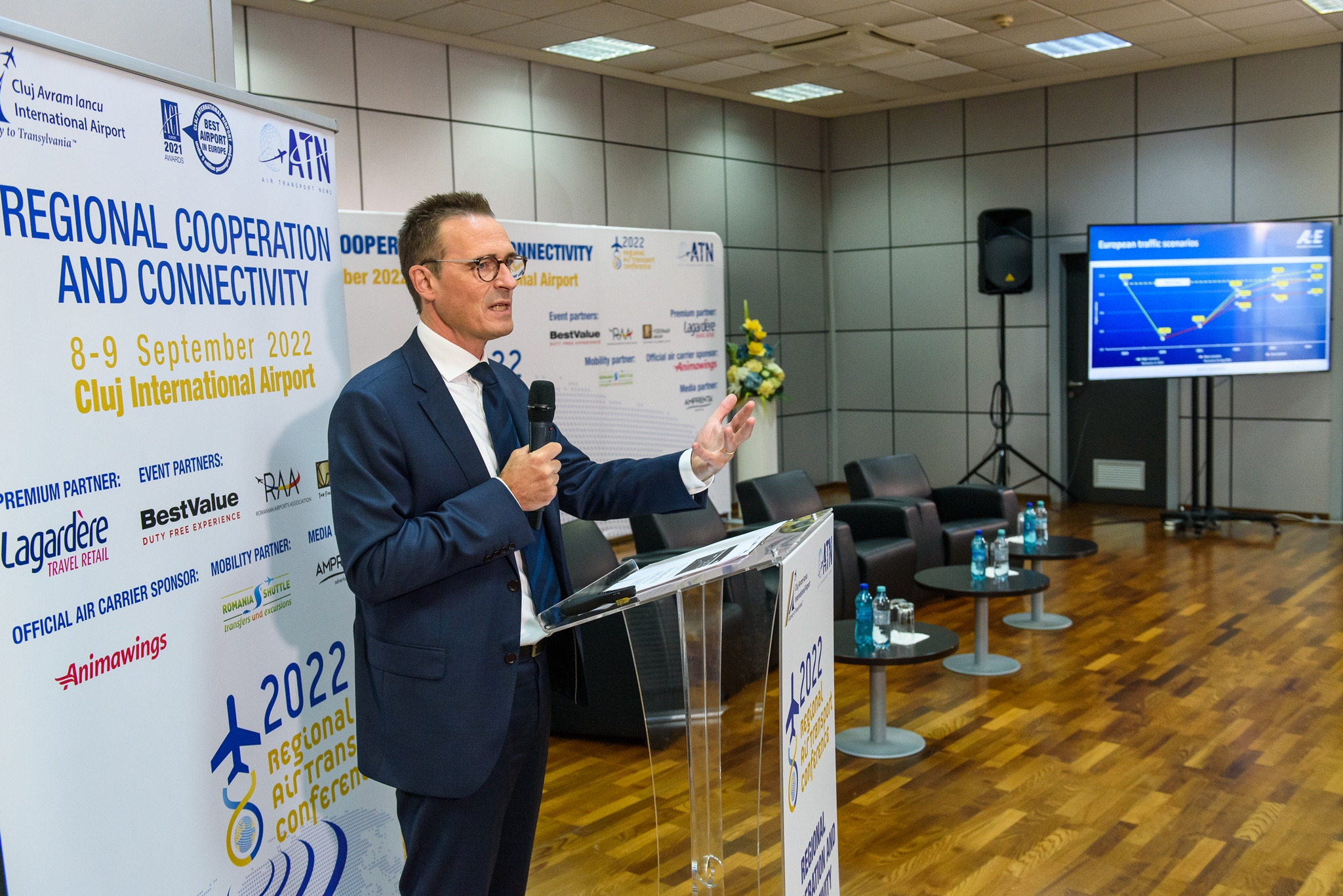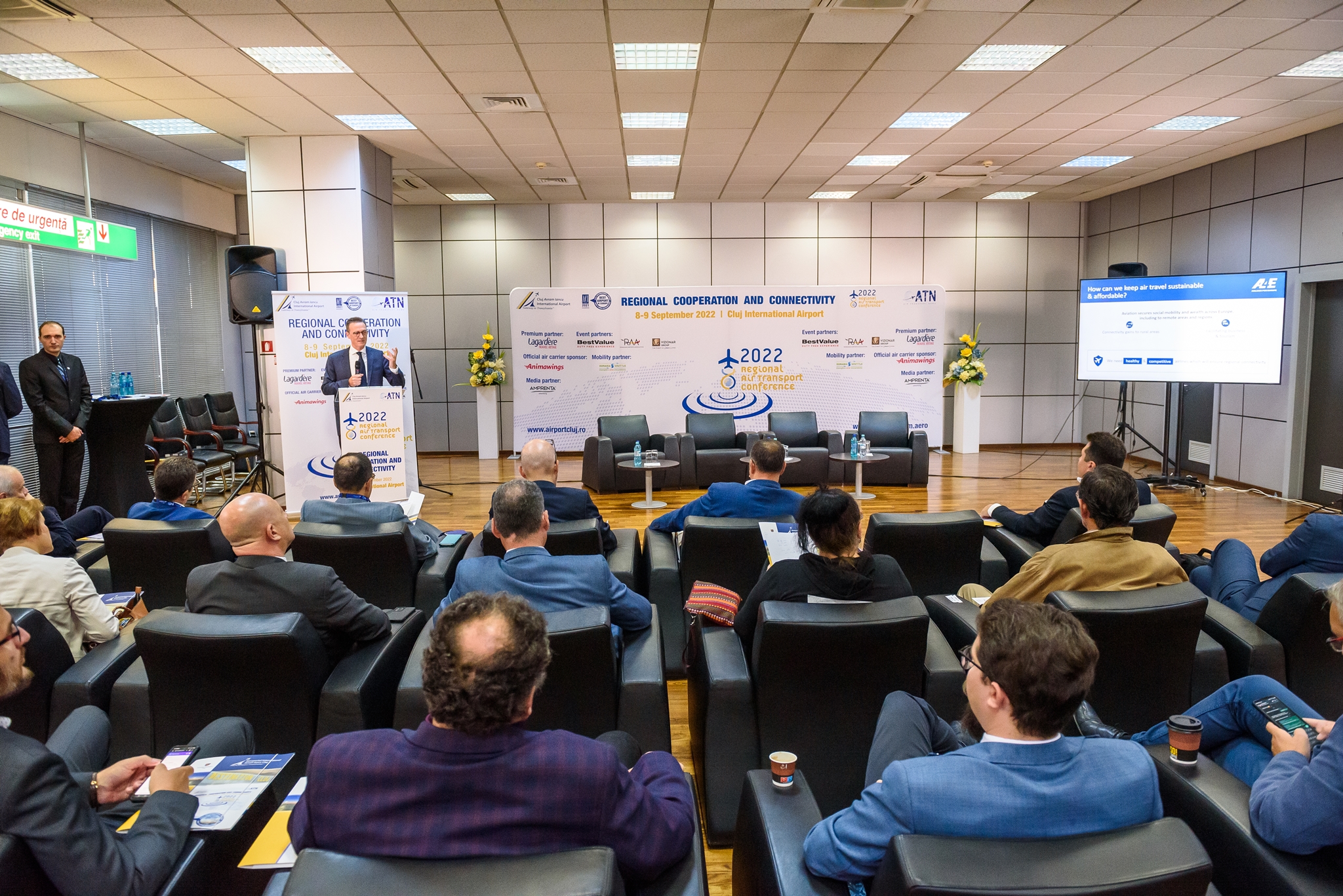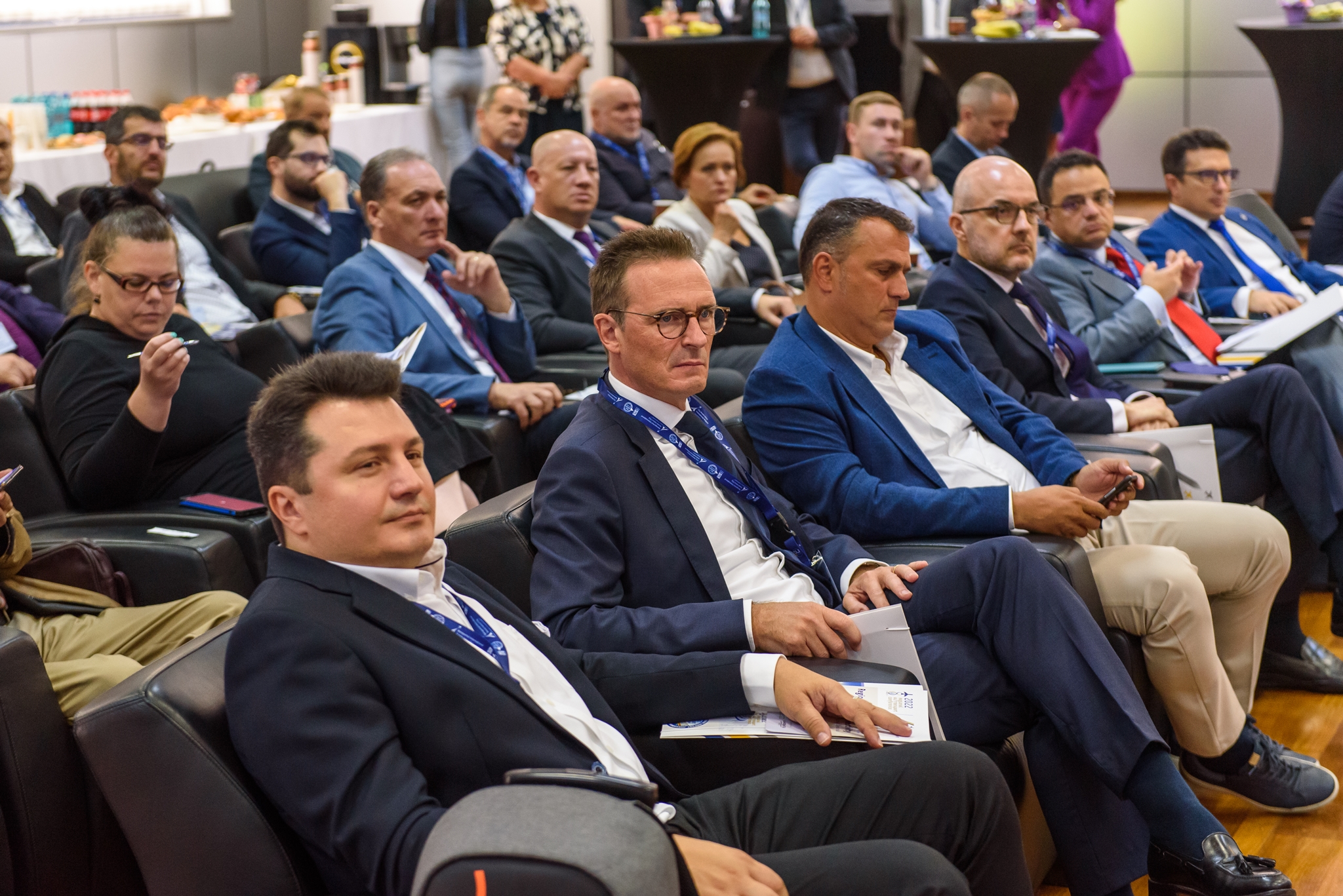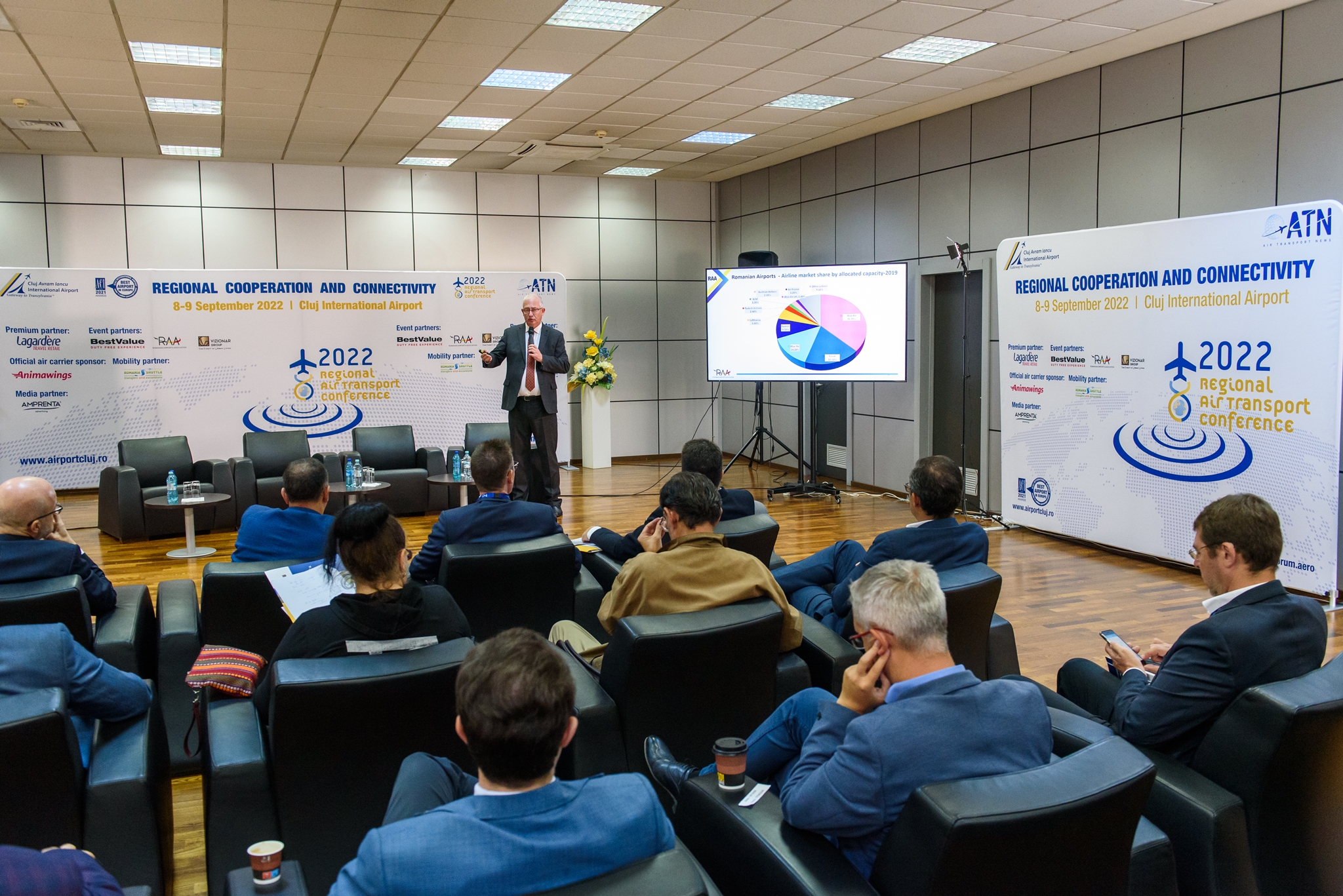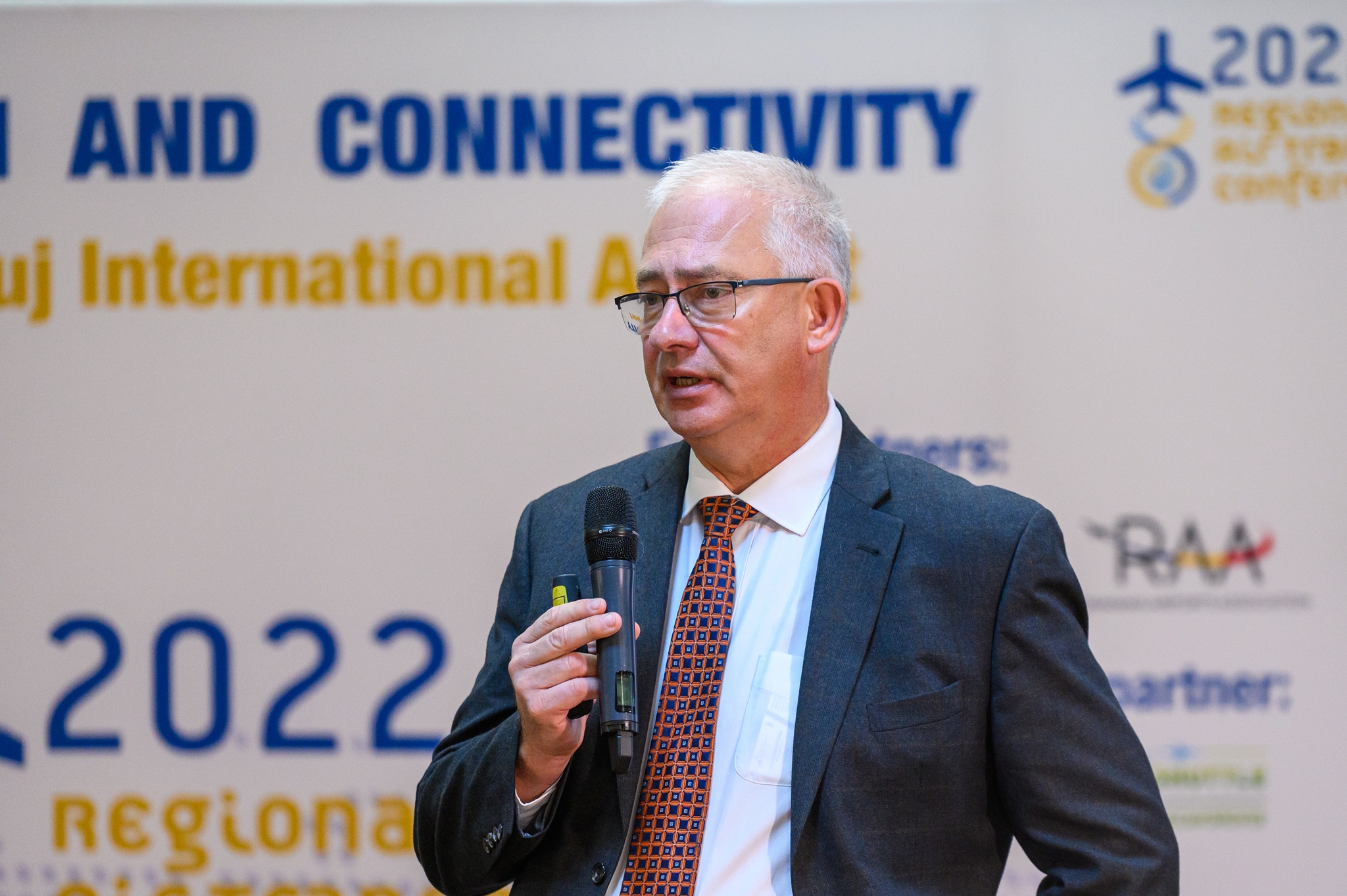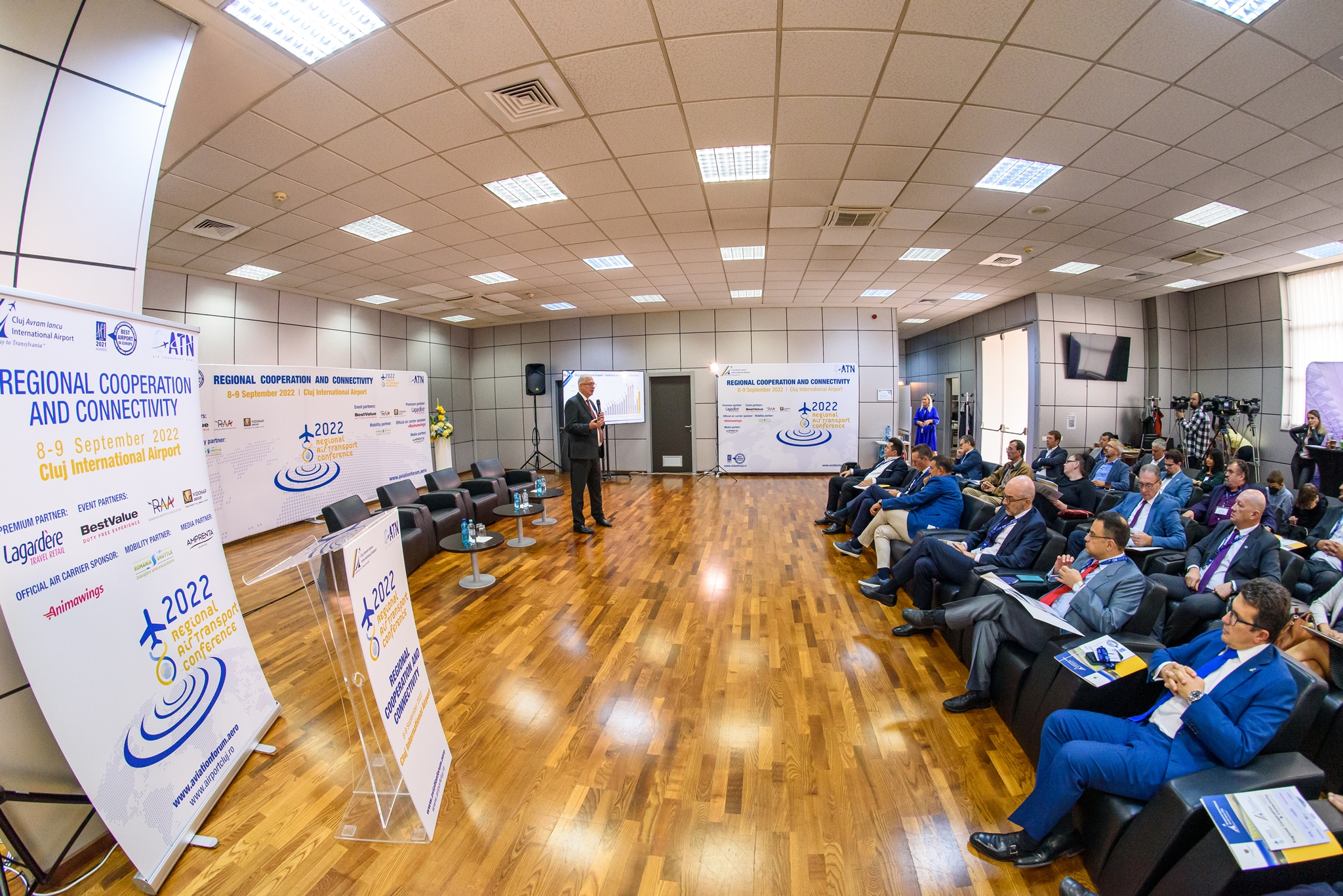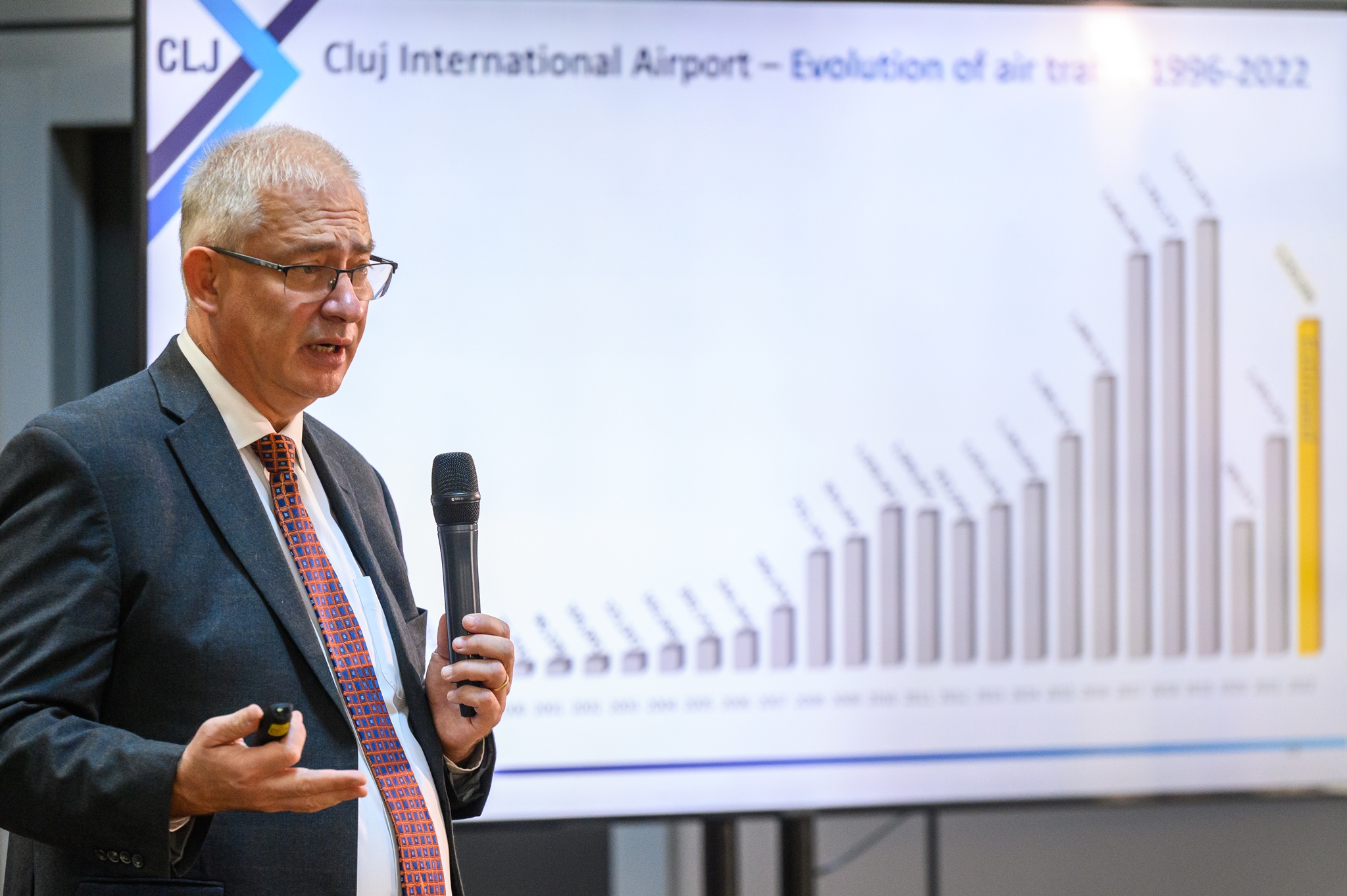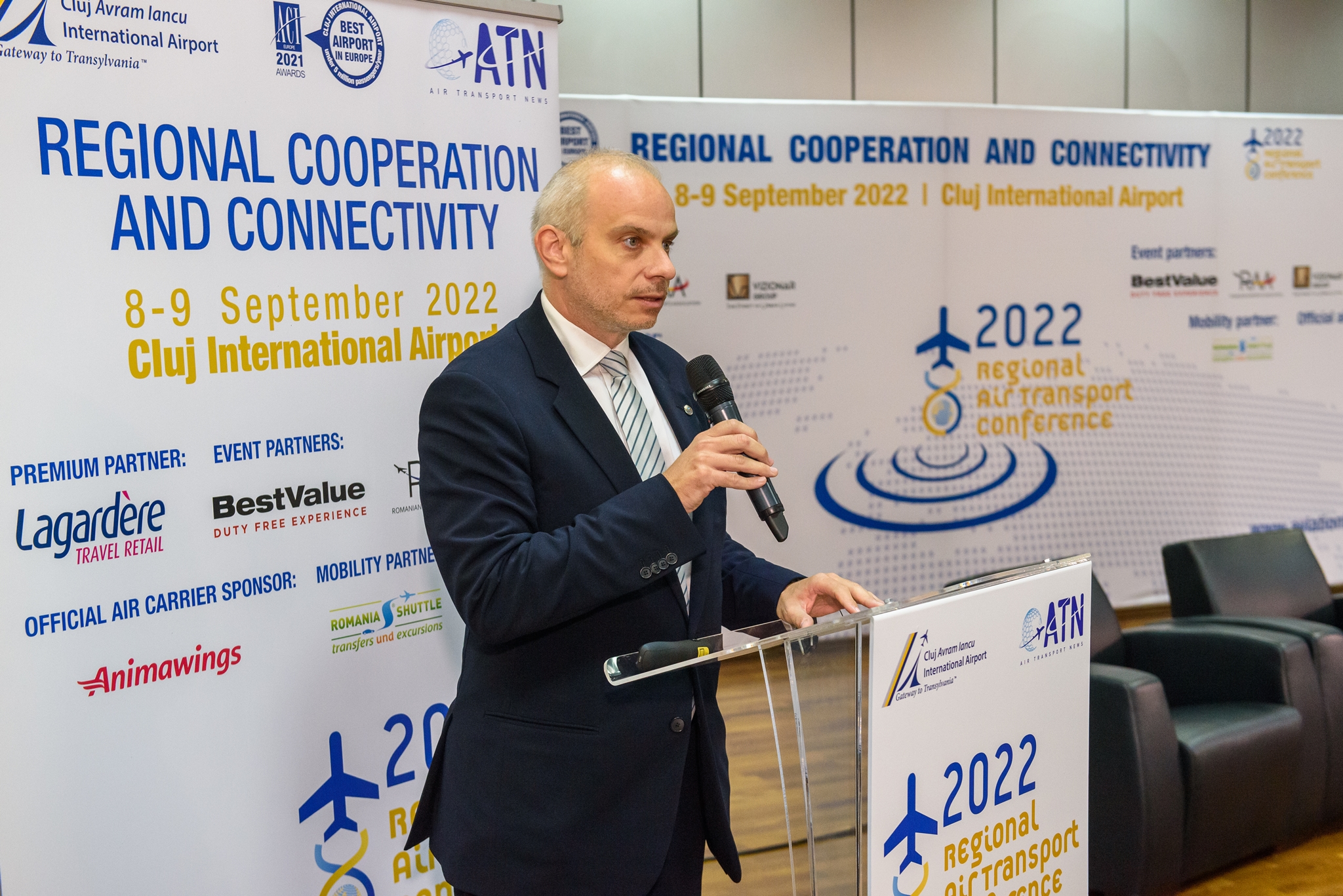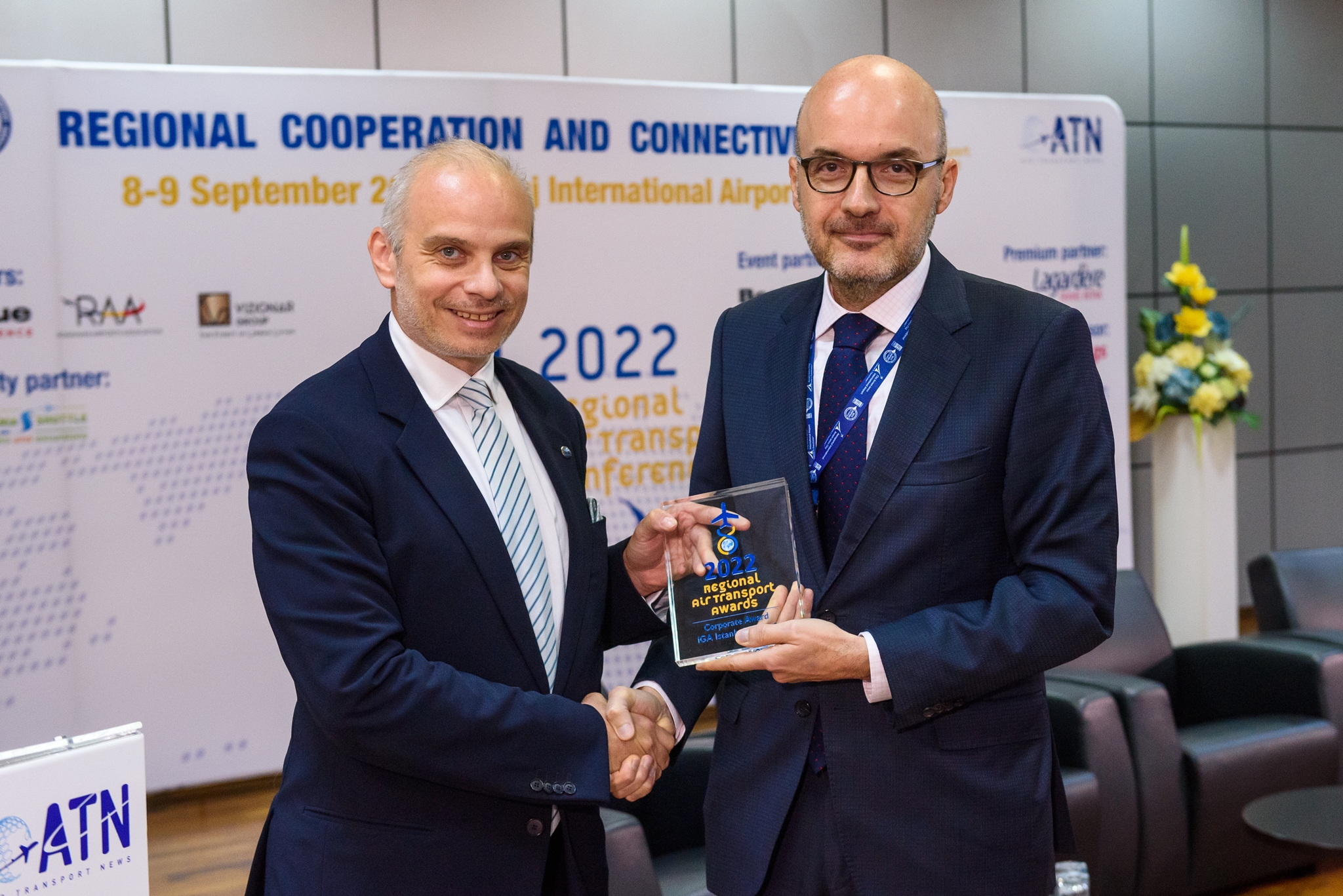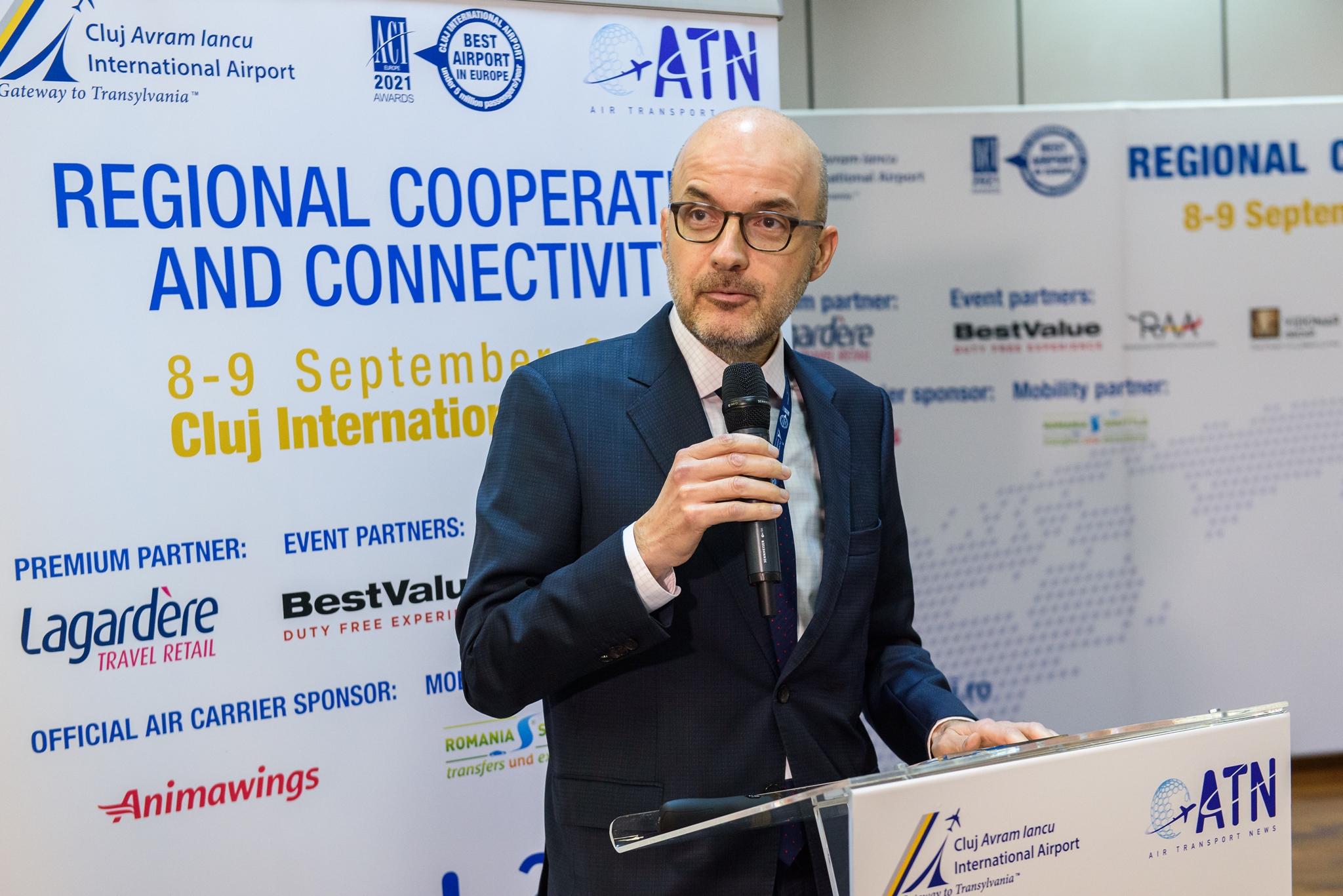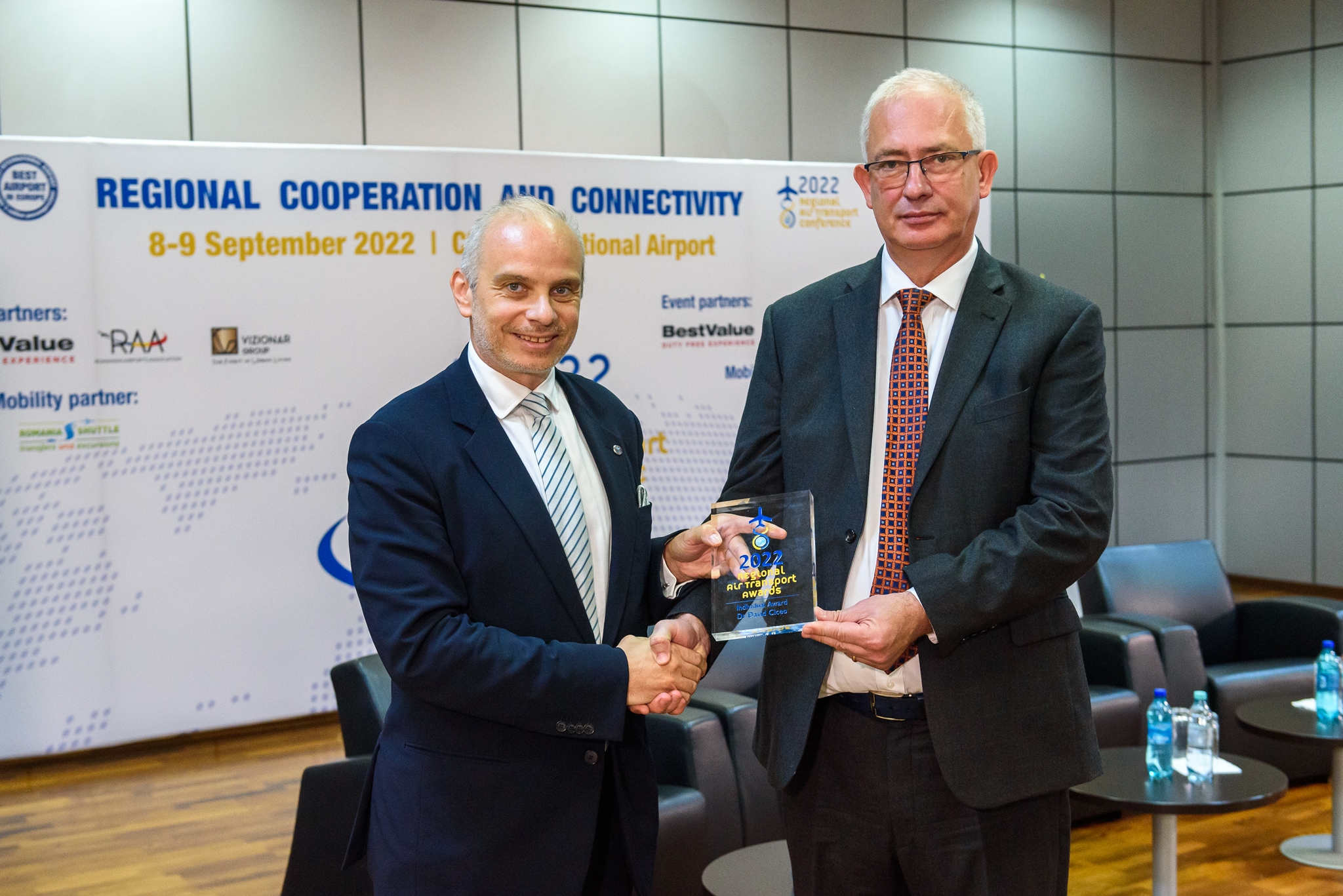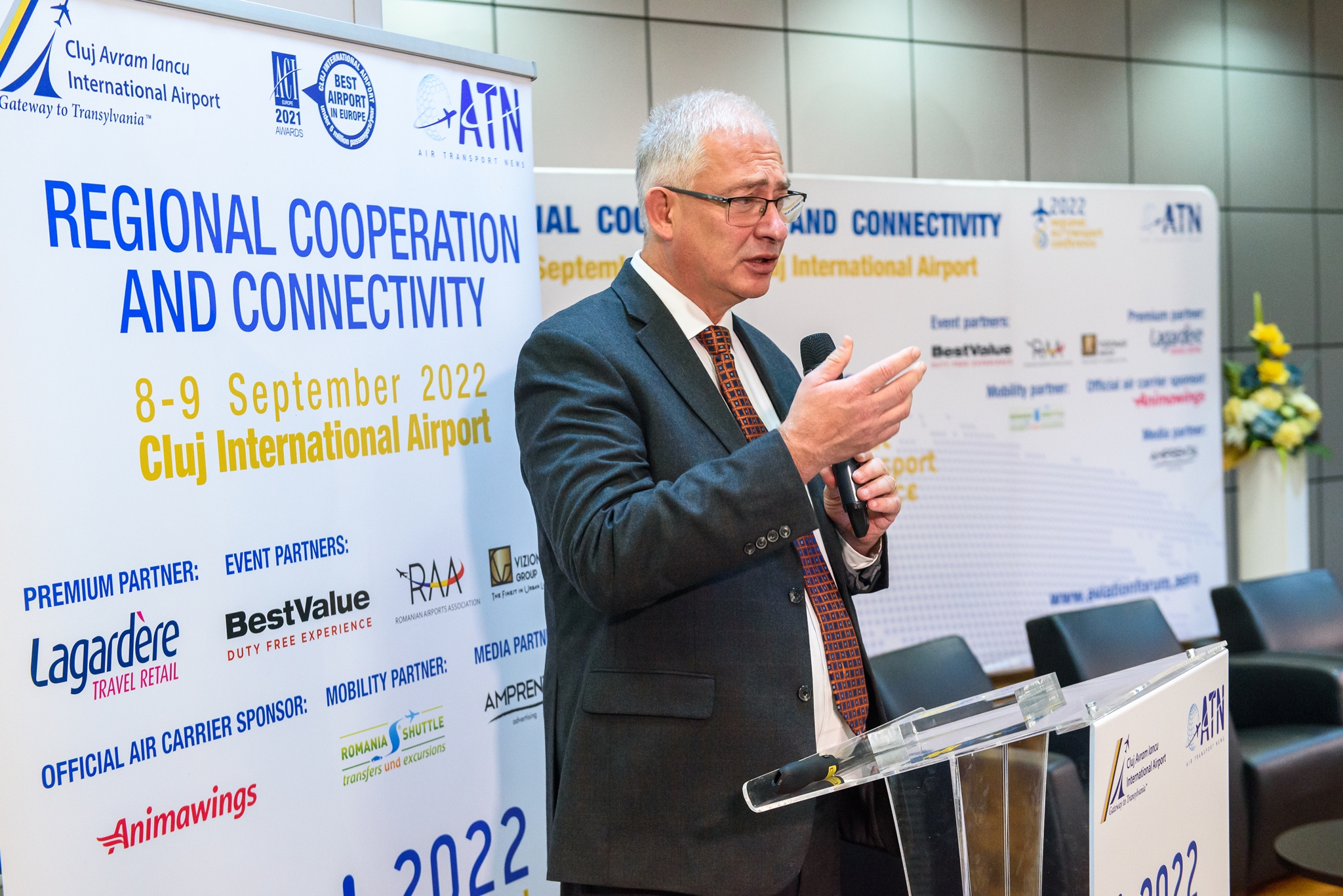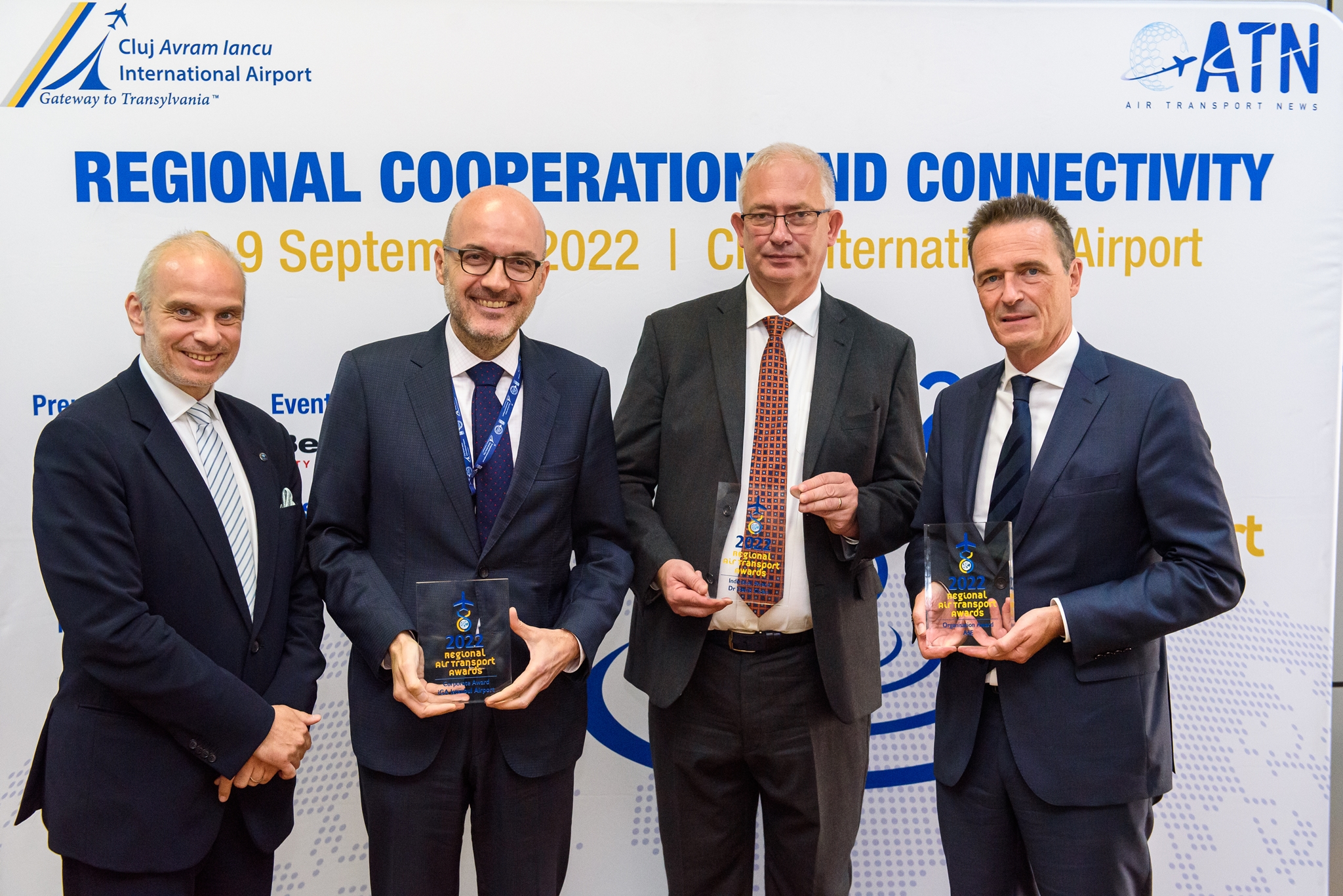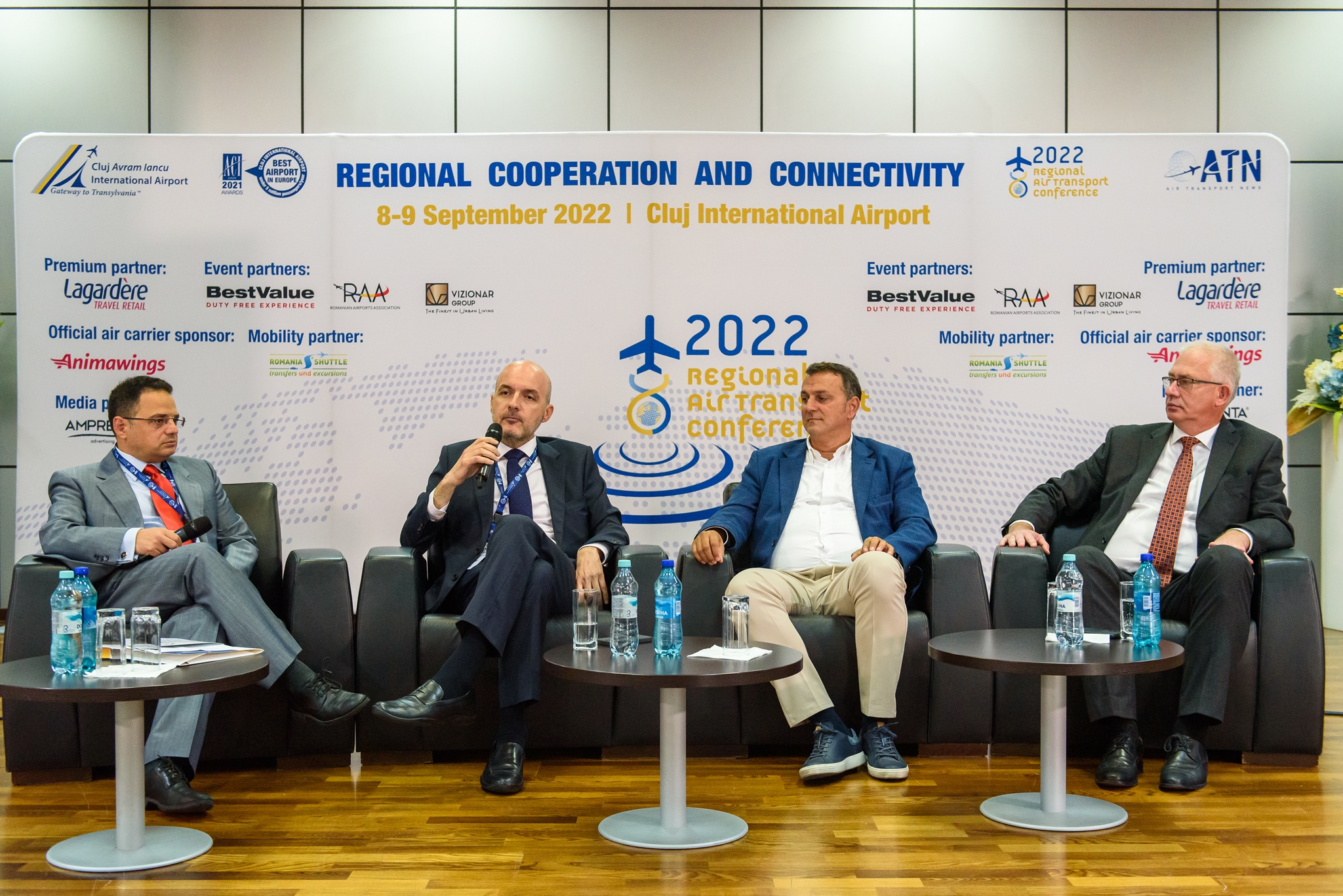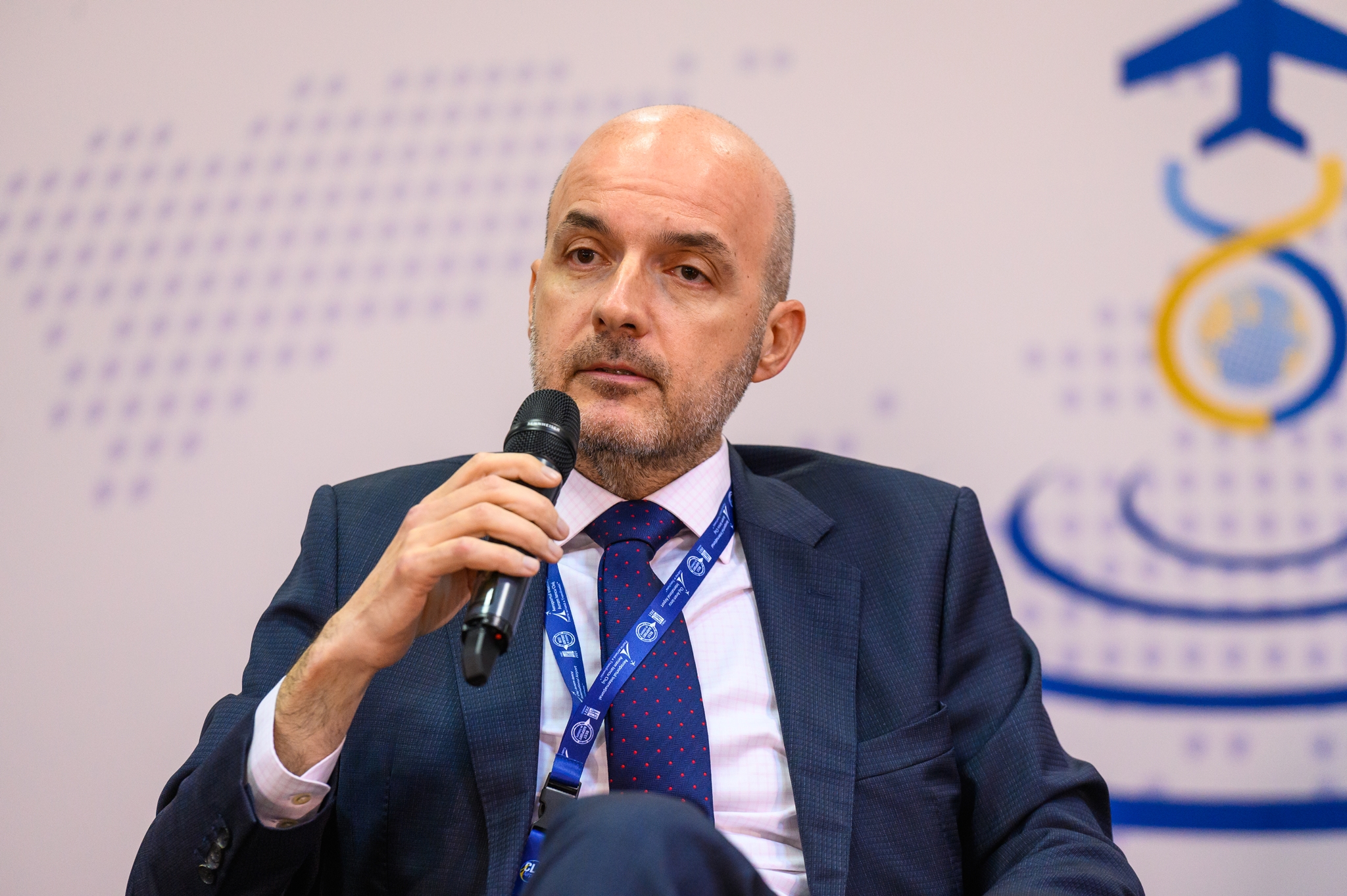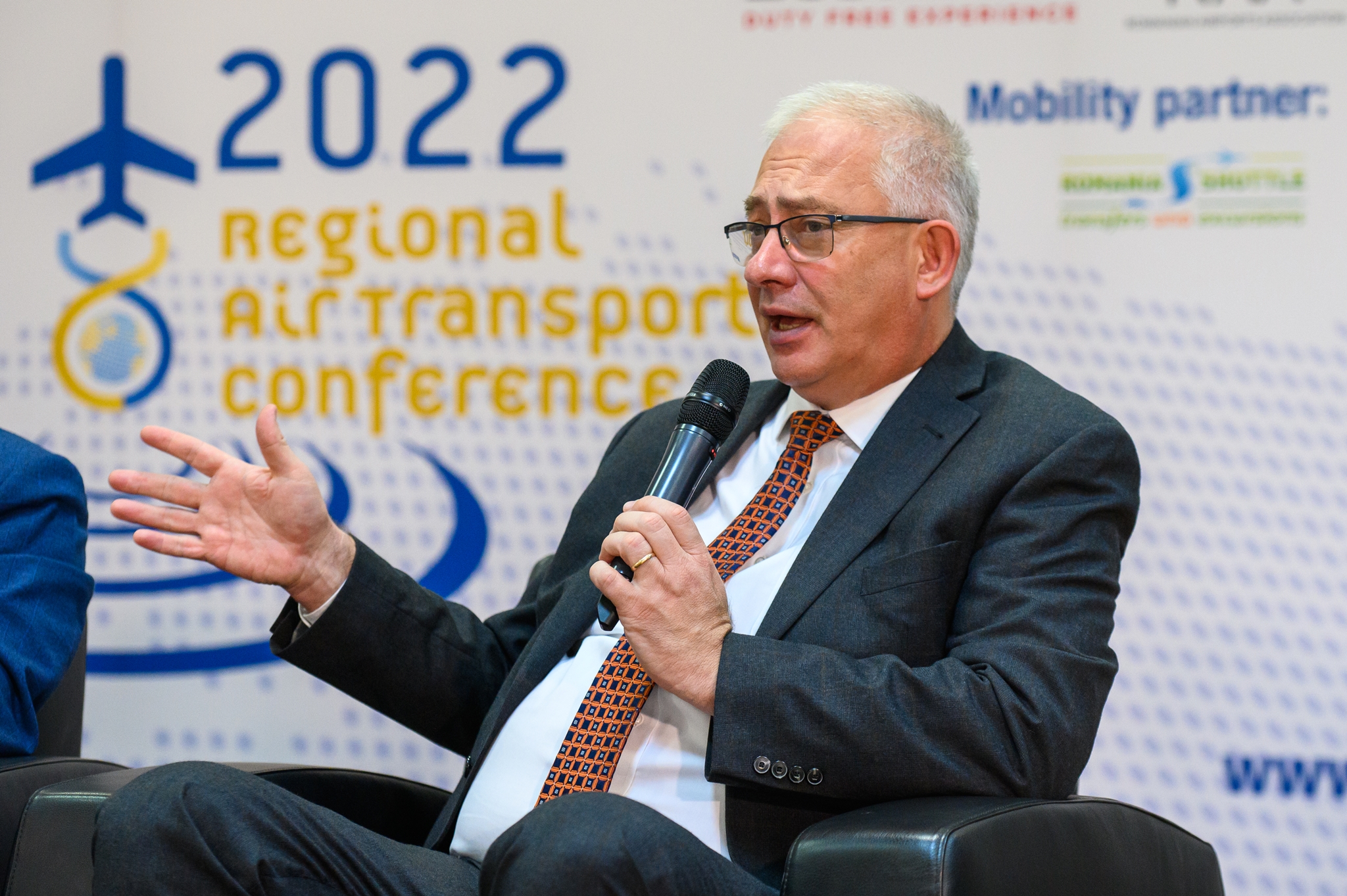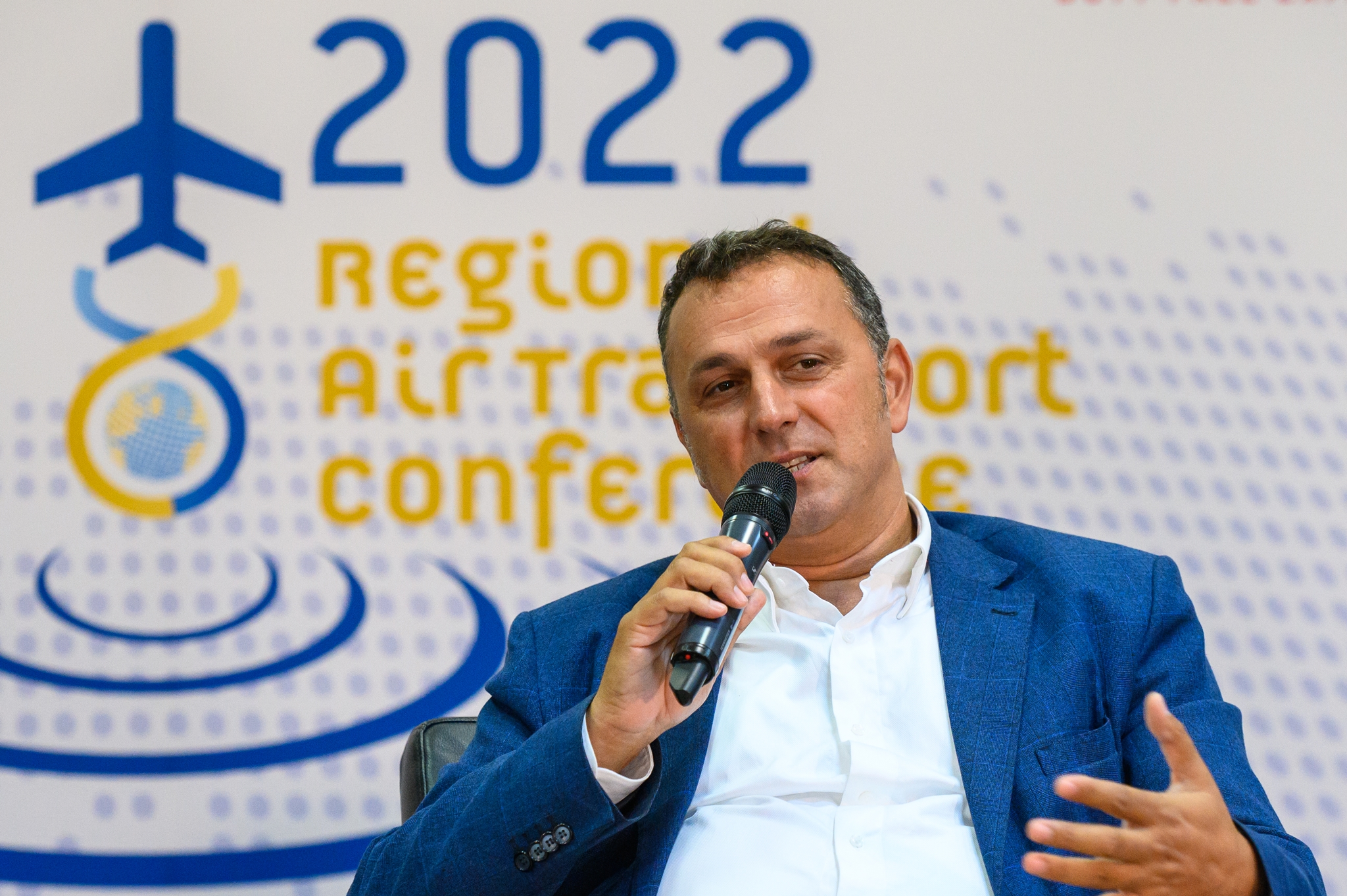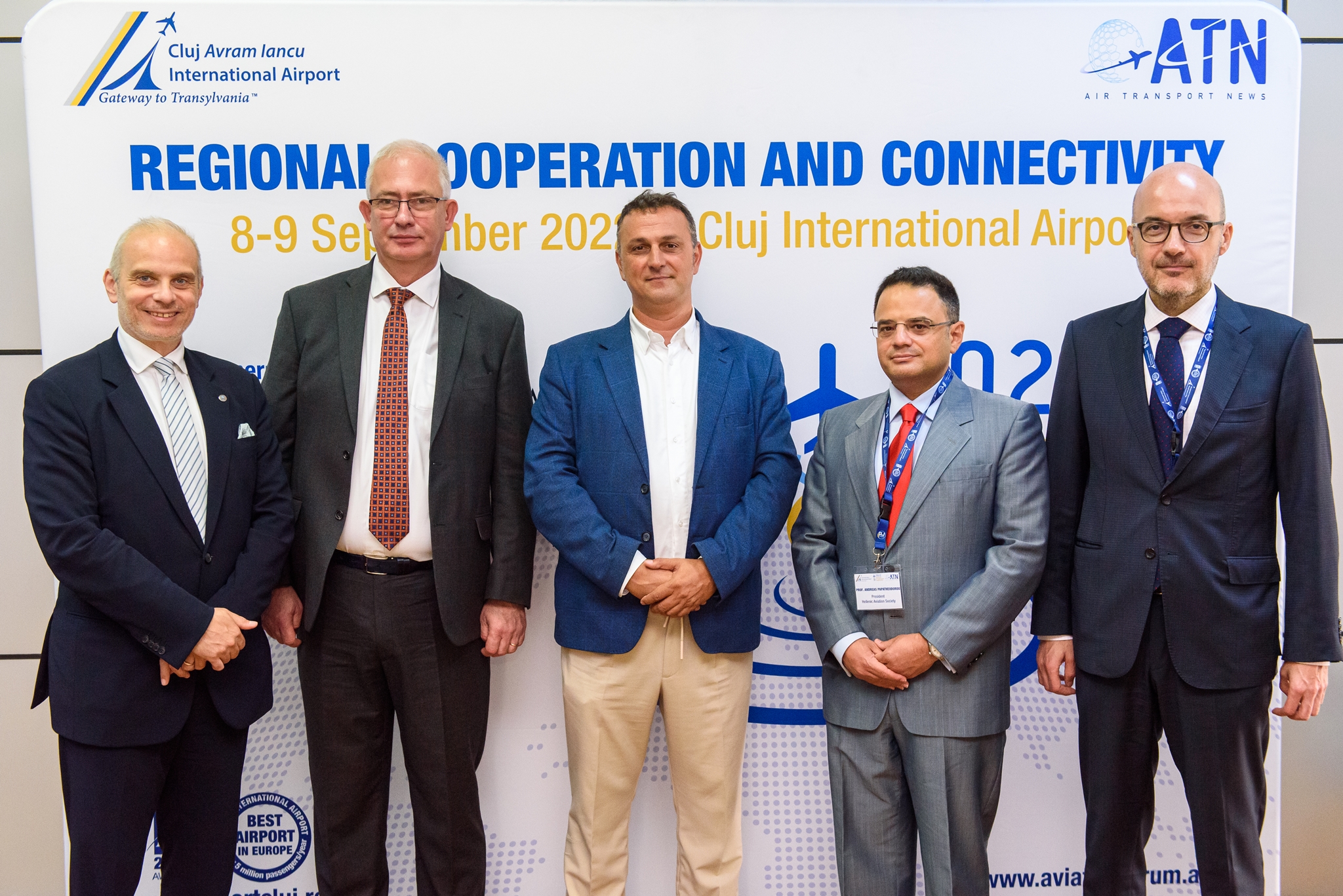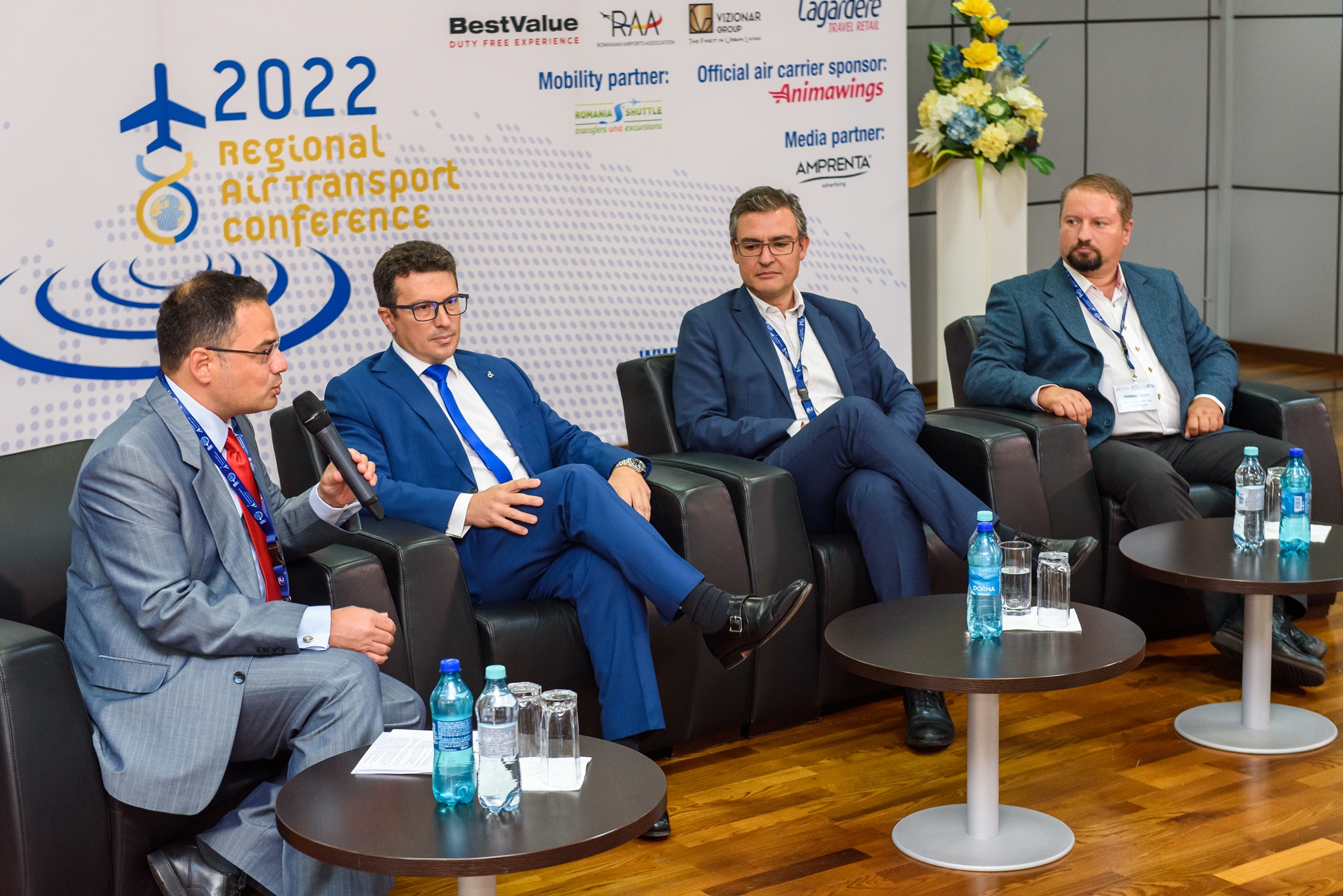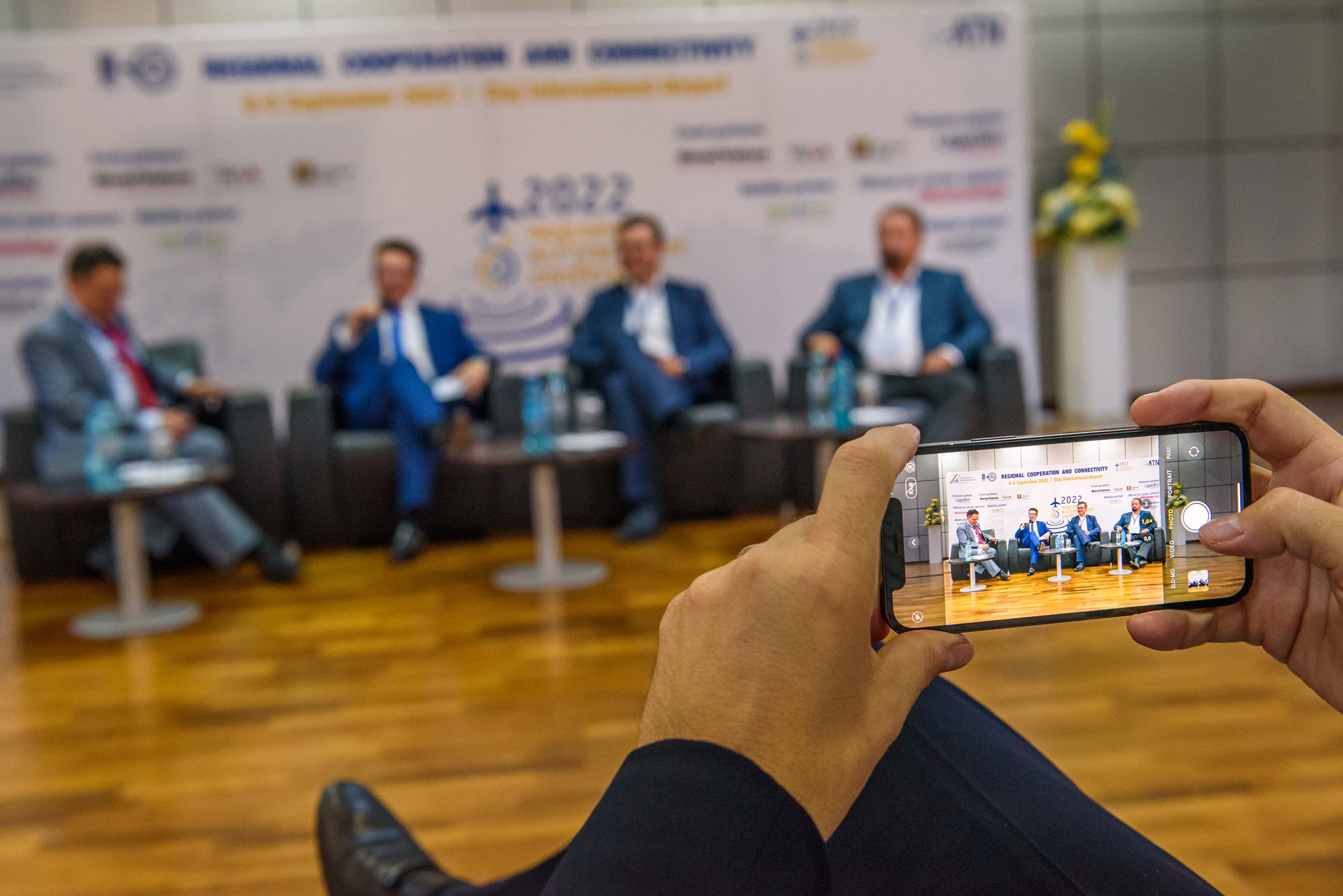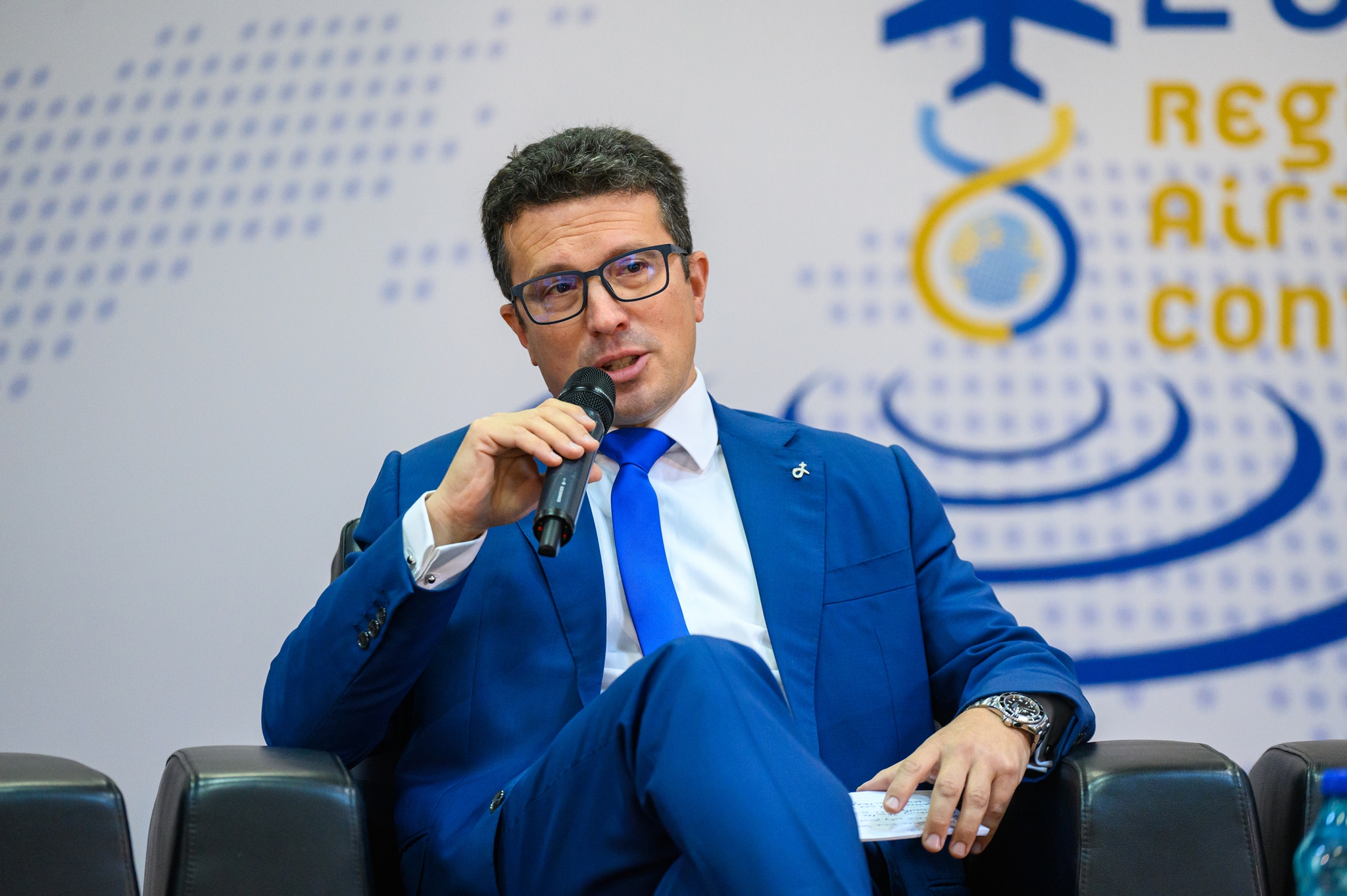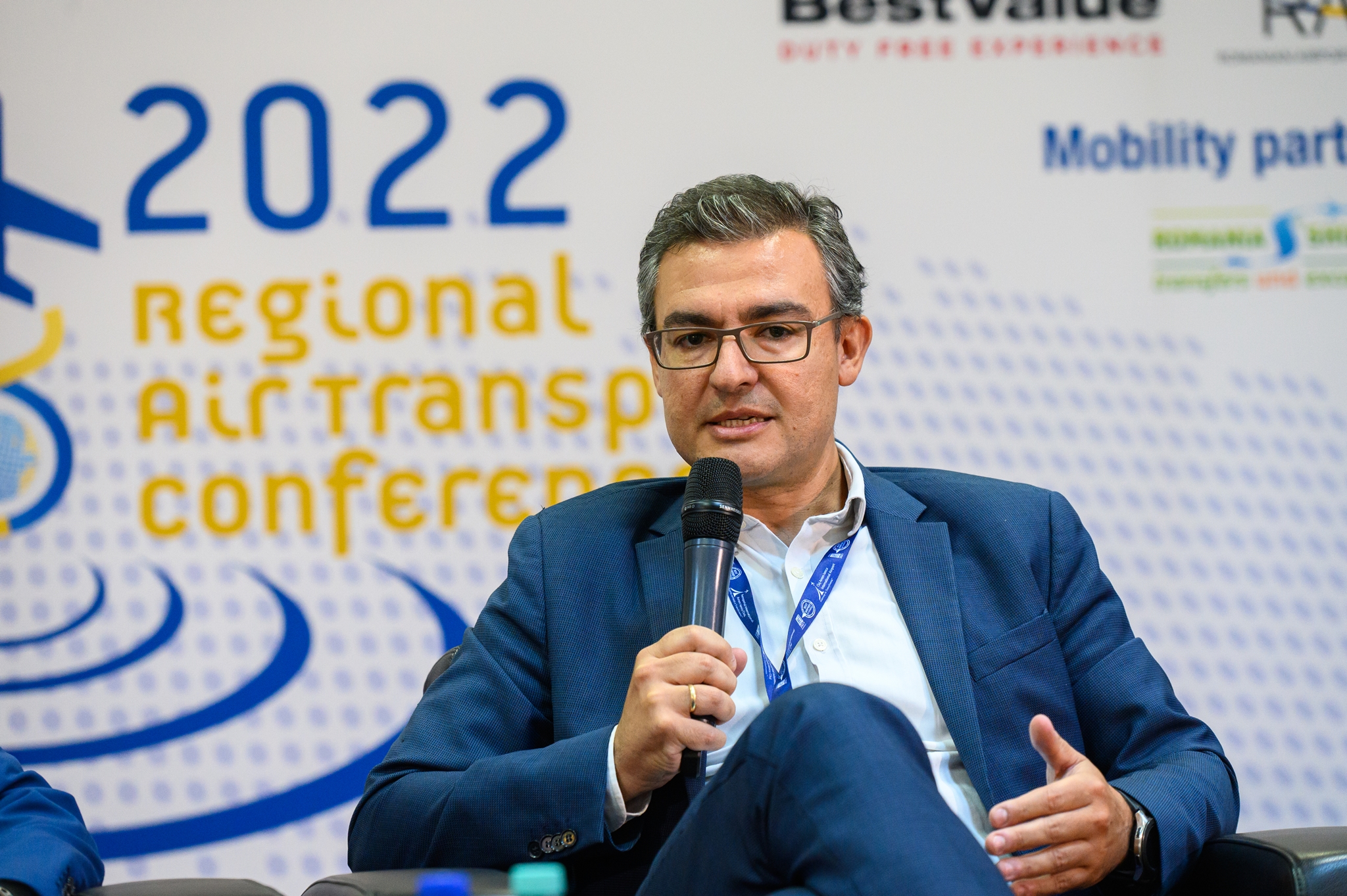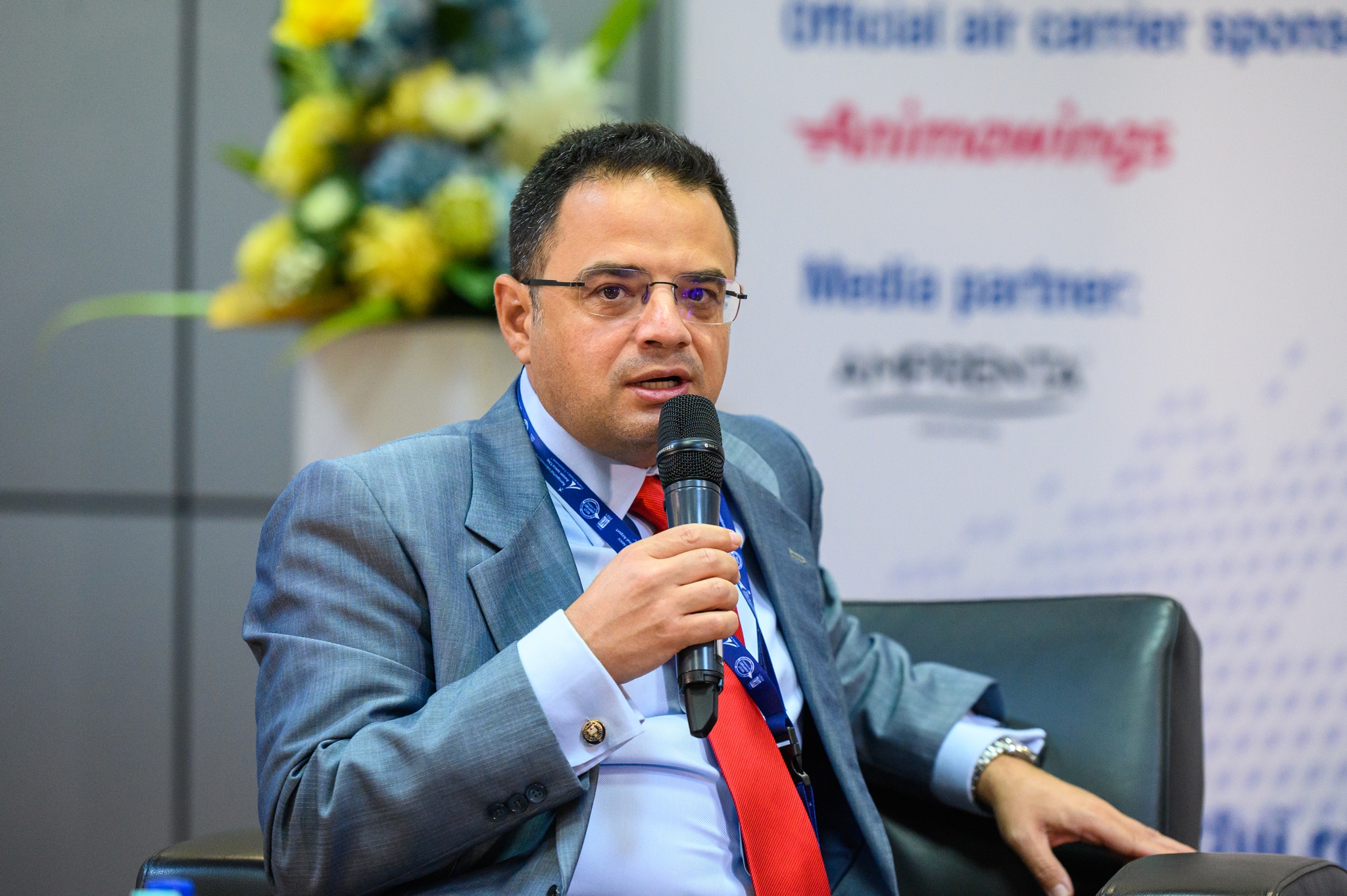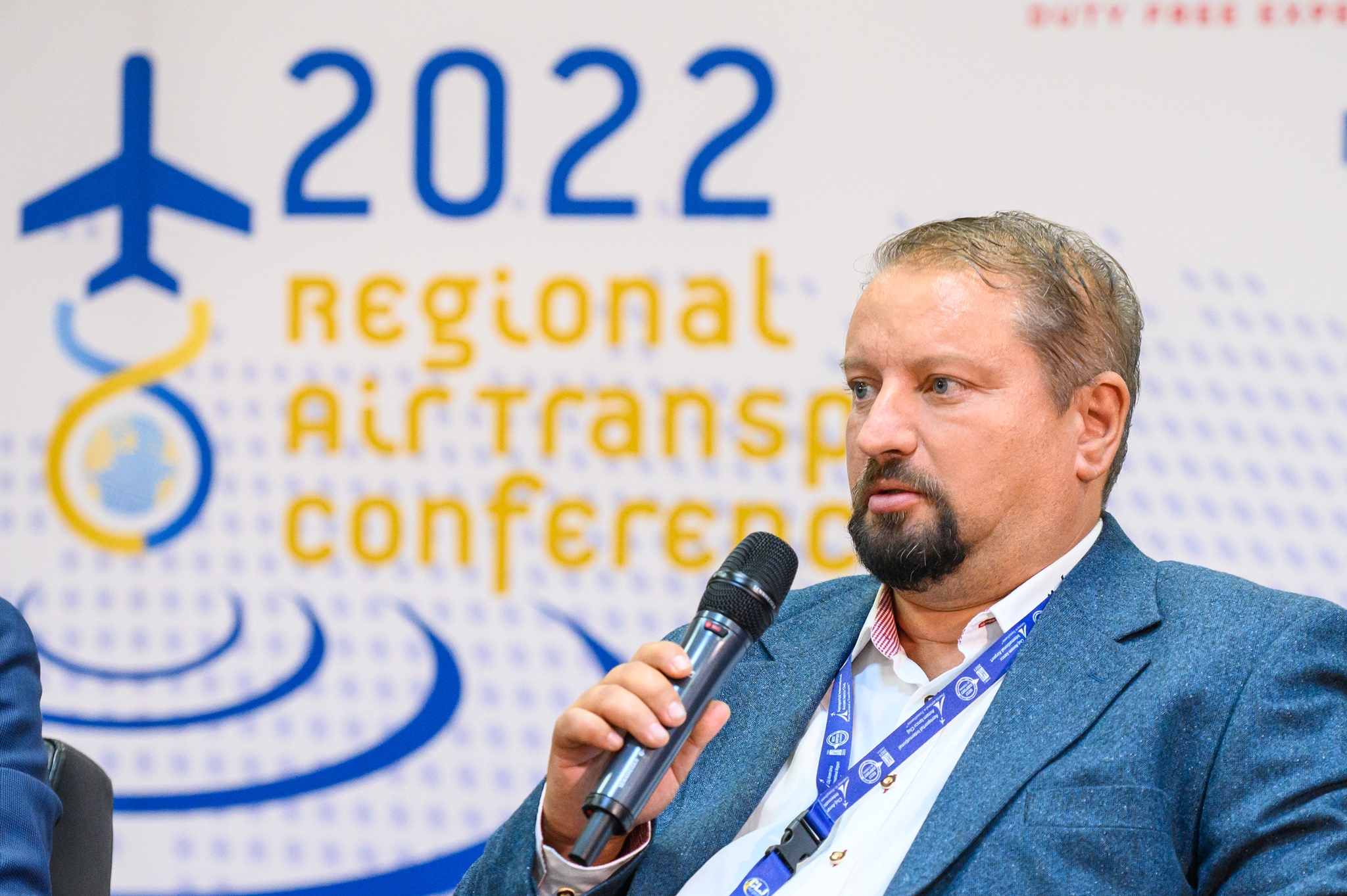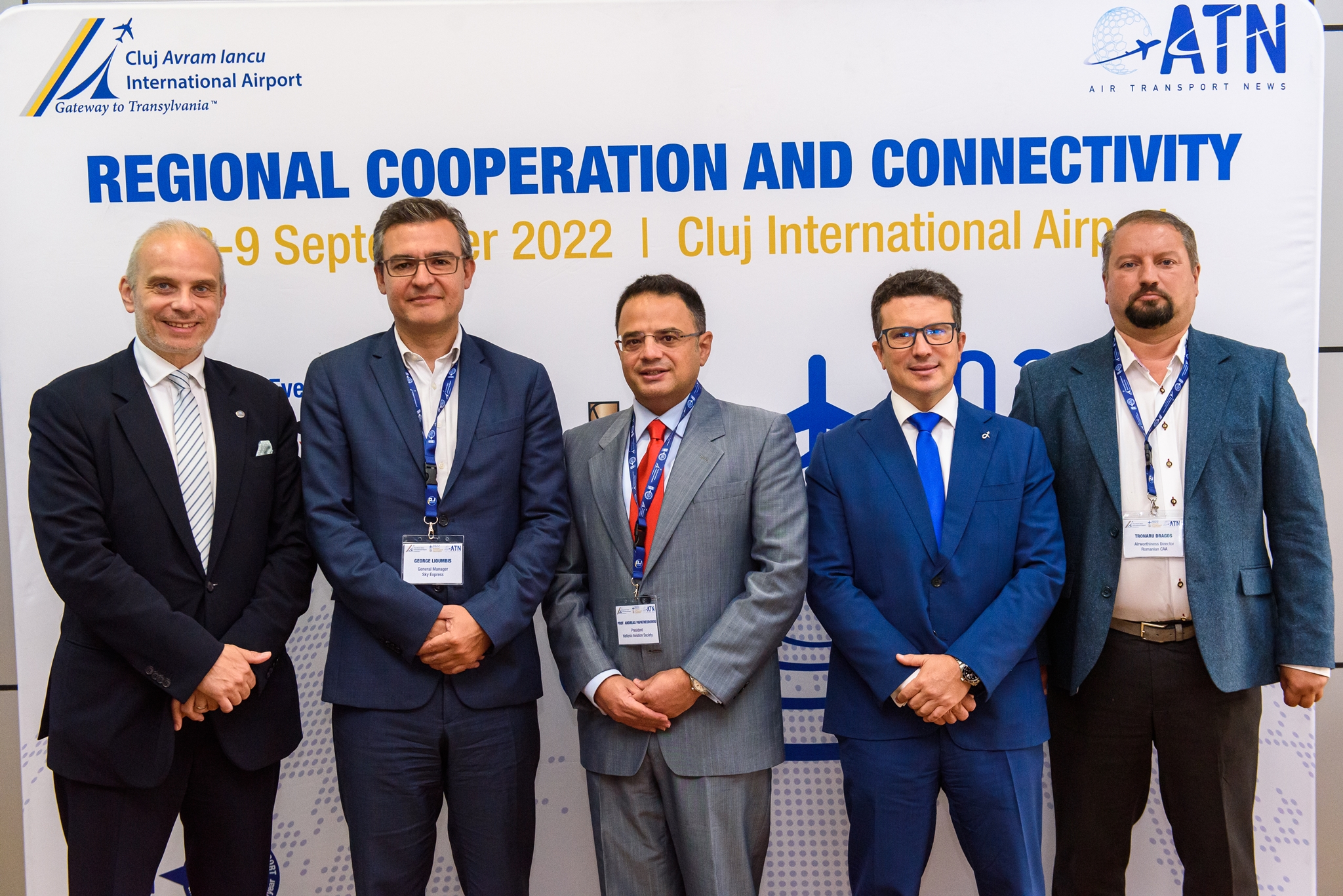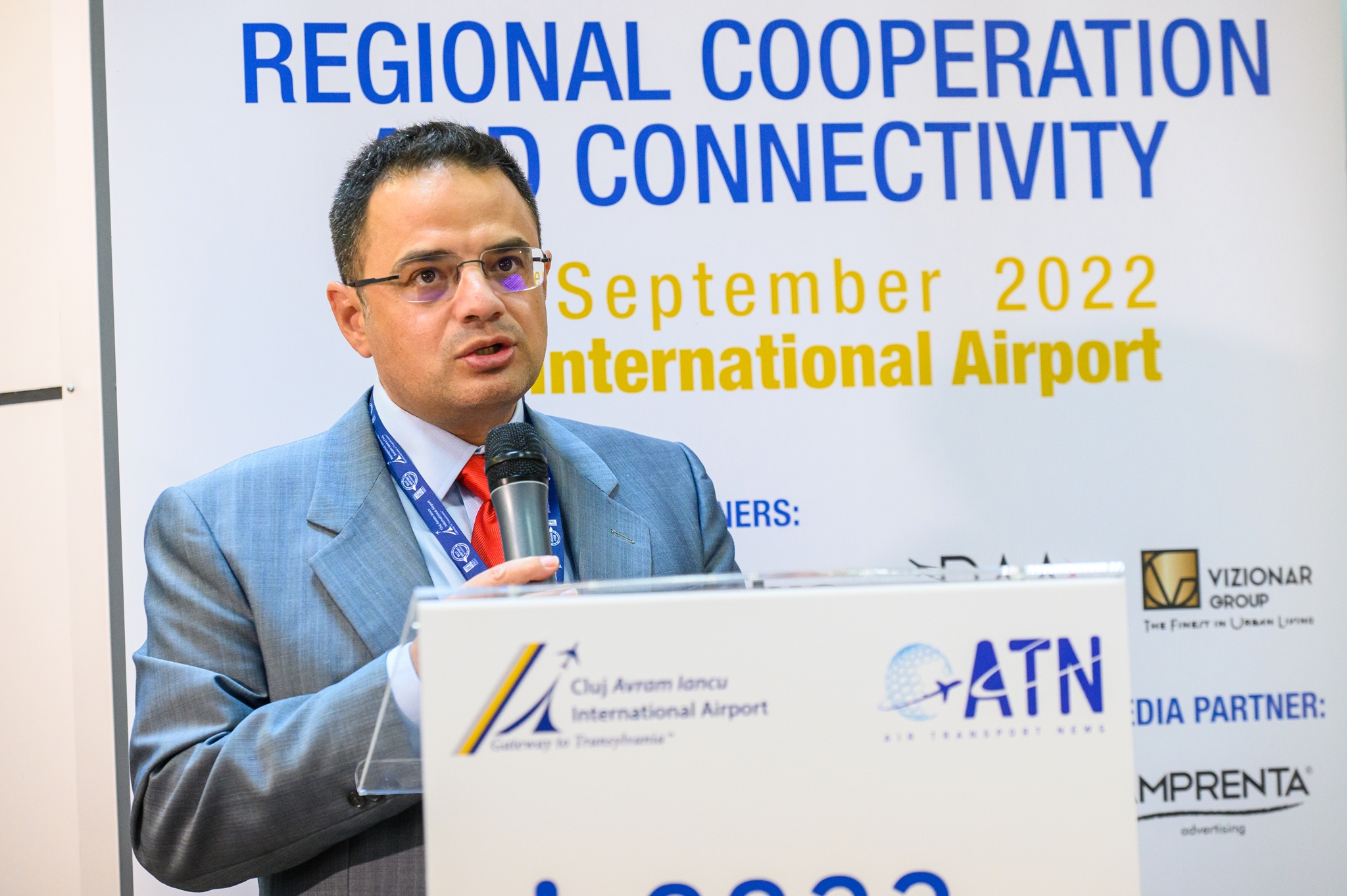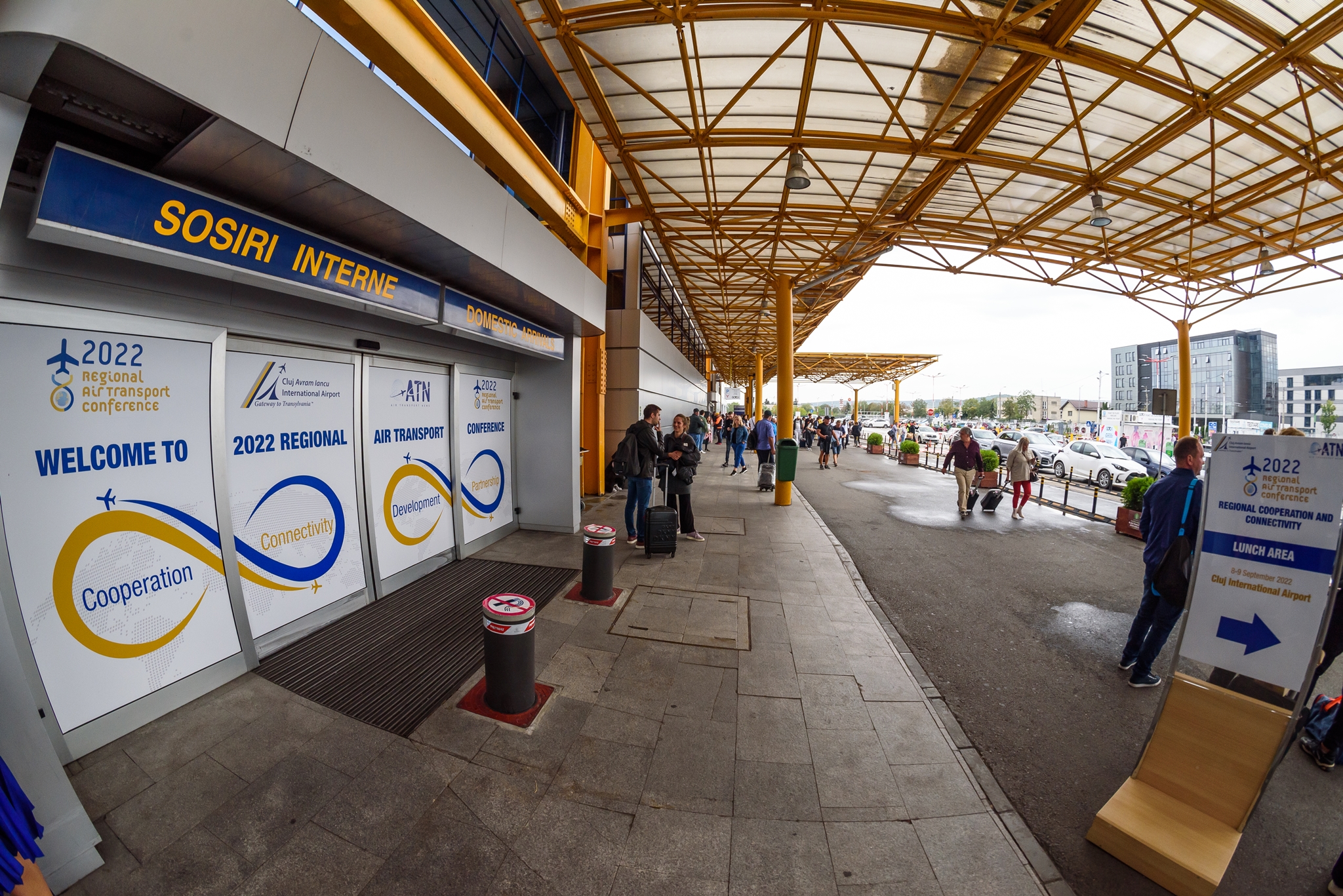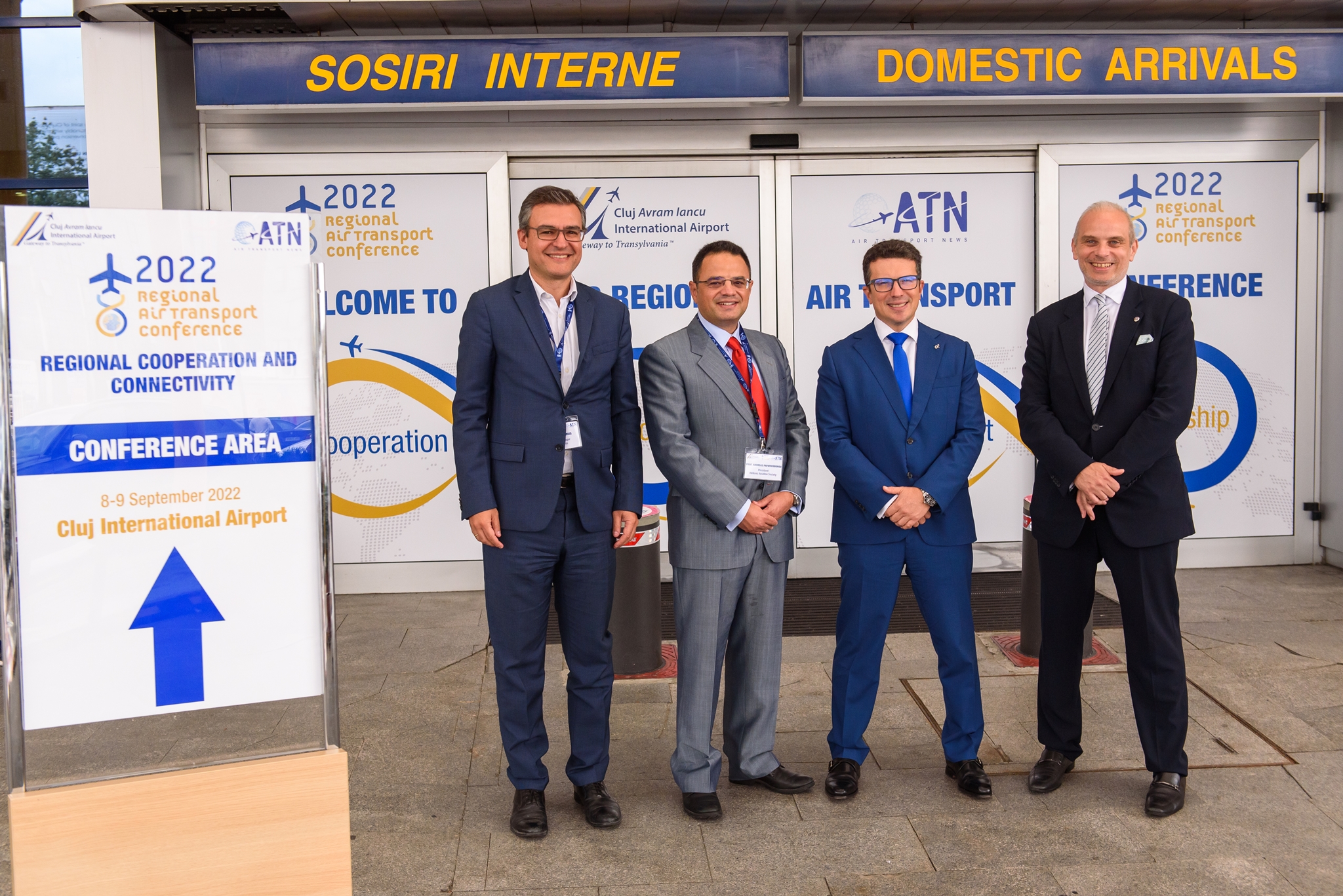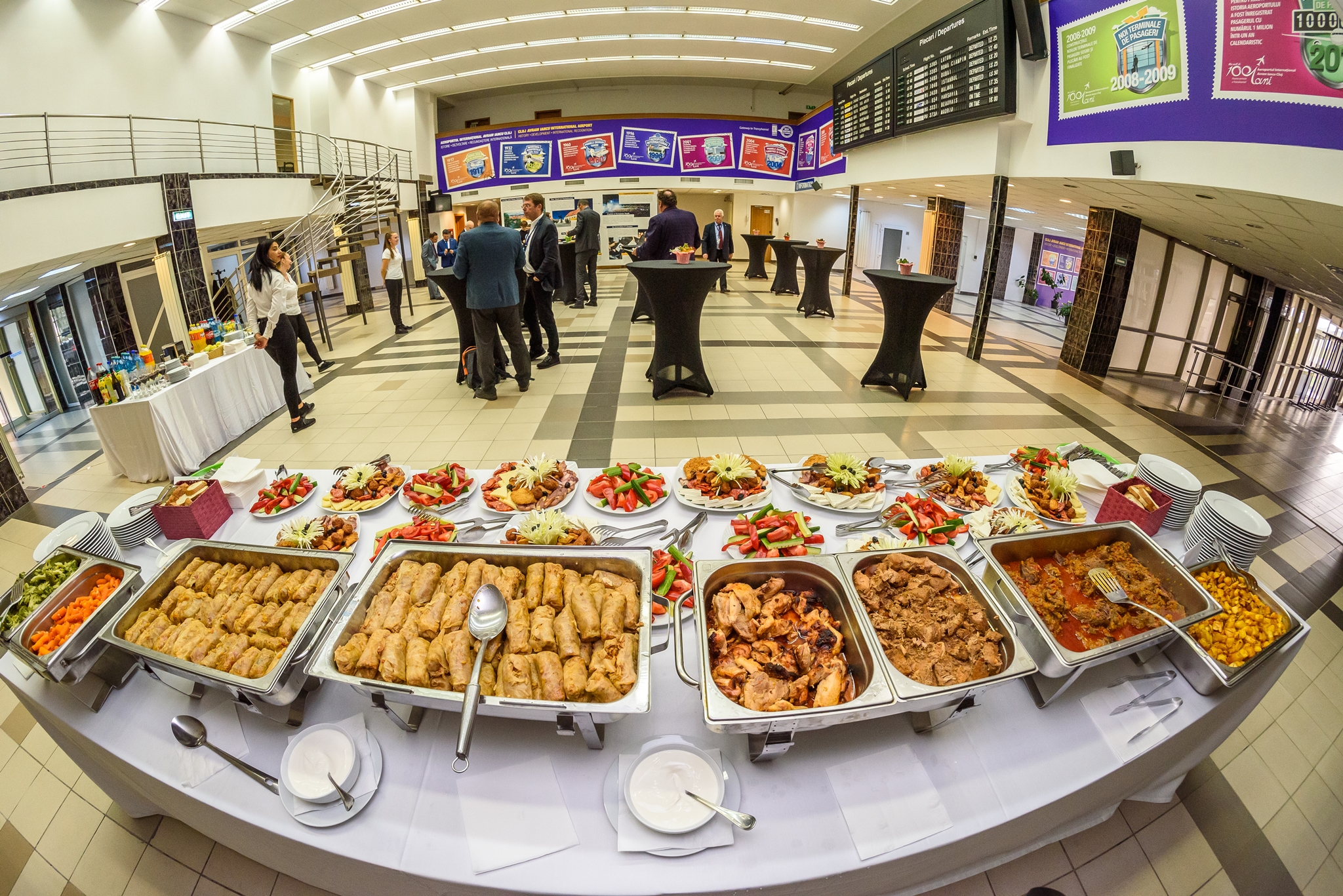
Regional cooperation and connectivity
8 & 9 September – Cluj, Romania
Regional development, trade and tourism are largely dependent on air transport accessibility. In the presence of severe discontinuity and isolation as a result of either physical (e.g. islands and other remoter regions) and/or political (e.g. border regions) geography, securing and improving air transport connectivity may prove important for economic prosperity and social welfare. Nonetheless, as a result of the COVID-19 pandemic, airlines and related supply chain partners suffered from unprecedented financial difficulties to the detriment of air connectivity too. Therefore, to overcome this adverse situation and build back an enhanced level of regional connectivity in the post-COVID 19 era, collaboration among all involved aviation stakeholders is of essence. The 2022 Regional Air Transport Conference will focus on this very issue highlighting how airlines, airports, ANSPs, ground handlers and other companies can step beyond their typical supply chain conflicts to jointly pursue sustainable cooperation practices that would bring great benefits not only for aviation businesses but also for the regions and their local societies. Business leaders, regional/local government representatives and other eminent personalities will discuss best practices and the way forward.
Thursday 8 September
Welcome dinner
Friday 9 September
Welcome Addresses
Dr Kostas Iatrou, CEO, ATN – Air Transport News
Emil Boc, Mayor of Cluj-Napoca (video)
Răzvan Ciortea, Cluj County Deputy Governor
Keynote Address
Thomas Reynaert, Managing Director, A4E
Cluj International Airport Presentation
PhD. Eng. David Ciceo, CEO, Cluj International Airport
2022 Regional Air Transport Awards ceremony
Organisation Award – A4E
Corporate Award – iGA Istanbul Airport
Individual Award – Dr David Ciceo
Session 1
Moderator: Professor Andreas Papatheodorou, President, Hellenic Aviation Society
Kadri Samsunlu, CEO, iGA Istanbul Airport
PhD. Eng. David Ciceo, CEO, Cluj International Airport
Cristian Paris, VP Balkans, Menzies Aviation
Coffee Break
Session 2
Moderator: Professor Andreas Papatheodorou, President, Hellenic Aviation Society
Riccardo Lambiris, Chairman, Athens International Airport
George Lioumpis, General Manager, Sky Express
Dragos Trunaru, Airworthiness Director, CAA Romania
Conclusions
Farewell lunch
Classical Music Concert – “Gheorghe Dima” National Music Academy (1, Hermann Oberth street)
Evgenia Votanopoulou (piano) & Nina Patrikidou (violin)
Cluj ”Avram Iancu” International Airport, the 2021 Best Airport in Europe in the under 5 million passengers per year category (ACI Europe), organized along with Air Transport News (ATN) on the 8 & 9 September the 2022 Regional Air Transport Conference bringing together top representatives of airline, aviation associations and airports in the region to discuss “Regional cooperation and connectivity”.
Dr Kostas Iatrou, CEO, Air Transport News, in his keynote address stressed the importance of connectivity for the promotion of economic and social welfare and called all aviation stakeholders to move beyond typical supply chain conflicts and collaborate to restore and improve connectivity and to adopt best sustainable cooperation practices for the benefit of aviation business and regional communities.
Mr. Thomas Reynaert, Managing Director, A4E, stated that 2022 traffic is 85-90% to the 2019 passenger figures but most airlines have not returned to their pre-Covid capacity, as there is slower recovery on the business side. Out of the 770 routes cancelled due to Covid-19, 612 routes have reopened but by fewer airlines. More than 800 routes, some among them low performers, had significantly less frequency especially at a European regional and domestic connectivity level. All these indicate that the passenger has less choice. Still air transport has been resilient in meeting demand and adjusting to new challenges such as the closure of air space due to the Ukraine war which has had huge impact for the airlines especially for the Baltic region airlines as they have to go through the Mediterranean corridor further increasing Northern Europe air space traffic and making flights not sustainable in terms of cost, CO2 emissions and passenger comfort. Mr Reynaert reminded that less flying affects the 80/20 rule which requires airlines to operate slots at least 80 percent of the time to retain the right to use them but this slot regulation will be reviewed and liberalized although some airlines do not approve. Other challenges ahead for aviation are first the fuel price which accounts for one third of airline cost operations and has increased by 80% and second the inflation that will influence consumer behaviour and consumer confidence. He pointed out that some regional airports need infrastructure to cope with increasing traffic as the Single Aviation Market will open up more routes. He stressed that only affordable prices will help airlines remain competitive therefore airlines must operate in a healthy competitive market with reasonable taxation. As for environmental sustainability, Mr Reynaert said the whole aviation sector, airports, airlines, NSPs manufacturers, has subscribed to the “Destination 2050” roadmap. SAFs are expected by 2035 and hydrogen propelled aircraft by 2040 but this new technology comes with a huge cost for airlines. He lamented the fact that other parts of the world do not share Europe’s commitment to decarbonisation and without legislation on a global level there will not be a level playing field.
PhD. Eng. David Ciceo, CEO, Cluj International Airport, stressed that the 17 Romanian airports have committed to achieve the zero emissions target. Traffic in Romania has multiplied 10 times since 1999 with key date being 2007 when Romania joined the EU and they expect further increase in the future reaching even 50 million. Liberalisation has put an end to the bilateral agreements which did not help regional airports. Cluj, with a good catchment area, is the biggest regional airport in Romania, serves 50+ destinations and in 2019 it had almost 3 million passengers with 80% being international traffic. The airport aims to attractnew destinations and add more destinations in the years to come. As the airport projects 7 million passengers by 2040, it will extend the runway, build a totally new taxiway, new aprons and the big challenge will be a totally new passenger terminal.
Session 1 panel discussion was moderated by Professor Andreas Papatheodorou, President, Hellenic Aviation Society who stressed the importance of collaboration for connectivity to enhance accessibility.
Kadri Samsunlu, CEO, iGA Istanbul Airport, said that his airport, a state asset, handles the biggest number of passengers in Europe, there are no capacity constraints or disruptions. Turkey and his airport aim at becoming a logistics center to cater for the increasing trade and cargo between East, the producers, and West, the consumers, as Istanbul is ideally located and can connect to 120 destinations within 3 hours. The airport has 400 flights per day with a capacity for 800 flights. They did the smart move to build a new airport when money was cheap and available as now the biggest challenge for the industry is capacity, but investment is much more expensive. Thus, they have a competitive advantage, including the operation on a 24-hour basis, and follow a more aggressive strategy. He stressed that regions outside the EU are less concerned about environmental sustainability and that the EU fit for 55 is very punitive and is going to be funded by the passenger and may hinder aviation growth. He added that regional partnerships are a tool for a hub to develop.
PhD. Eng. David Ciceo, CEO, Cluj International Airport, stated that although there is bigger potential for Romania and Eastern Europe than Western Europe, it is not easy to develop traffic when you are small; therefore, cooperation with hubs and regional partnerships are essential. He added that airport infrastructure is a necessary but not sufficient condition to enhance accessibility. He predicted that ground handling problems and delays will remain a challenge until 2023.
Cristian Paris, VP Balkans, Menzies Aviation, referred to ground handling as the behind-the-scenes player. He attributed the labour issues all over the world of aviation to Covid redundancies and aviation not being attractive anymore. He referred to the extremely high expectations of passengers in case of delays and the relative compensation is not sustainable. He predicted that there will be fewer and stronger airlines in the future, fewer airports, and more train stations. He added that ground handlers will follow the investment in technology of the sector and that there will be integration of systems with airlines and airports
They all agreed that the current geopolitical and economic situation forces the industry to set reasonable expectations and financially affordable solutions when it comes to decarbonisation and the timeline should be restructured to the changing circumstances. A not even level field with each country and region following different mindset to sustainability will hurt airlines and the whole aviation system. They agreed that the industry needs to be agile, resilient and adaptive and that regulation needs to adapt to keep up with the changes needed to remove obstacles.
The second panel discussion was also moderated by Professor Papatheodorou. Riccardo Lambiris, Chairman, Athens International Airport, said that Athens Airport, a very successful example of Public-private partnerships (PPPs), serves currently 26 million passengers but can grow to 50 million and that passenger numbers are only 15% down compared to the 2019 numbers. Athens’ phenomenal increase in passenger numbers from 2014 to 2019 was a result of the promotion of the city as a city break destination and of the airport policy to provide route incentive package to make business more enticing for airlines by sharing the burden cost of the route generation. He pointed that the reduction of capacity in European airports because of delays had a positive impact on operations in Athens and improved the overall travel experience and service.
George Lioumpis, General Manager of Sky Express, said that his company decided to invest in the Neo engine technology of Airbus, the closer available to sustainable, believing that the future of tourism needs to be sustainable. There are investments in renewable energy in multiple sectors throughout Greece. “Green” will be a demand of the passenger and destinations will have to be “green” too. The travel turbulence brought about by fuel increase and geopolitical constraints increase time of travel, cost and carbon emissions and force aviation stakeholders to remain lean, work with partners to perform better in a more economical way always keeping safety levels to the maximum. He pointed out that although flying to bigger airports offers airlines better positioning, passengers will drive airlines to select more regional airports and connect to their final destination because these smaller airports offer a better travel experience.
Dragos Tronaru, Airworthiness Director, CAA Romania, stressed that connectivity is a service and it will be the motor to satisfy passengers and gain back their confidence. The role of the civil authority is to secure level playing field on safety. The trust of passengers to the operators depends on the authority and its audits. He added that environmentally sustainable technology exists, but it is too expensive or not sufficiently promoted. Politicians focus on not losing elections thus regulators have to be pushed by the industry to move forward. Regulation’s role is to give the ability to operator to deliver the added value expected state while maintaining the ability to intervene if needed.
As headwinds awaiting the industry speakers in this panel referred to fuel prices impacting airlines as hedging strategies finish by the end of the year, the labour market shifts in volume and in finding people, the increase of salaries which will be putting pressure on the industry, inflation, stagflation, recession, geopolitical disruptions, currently Ukraine and possibly Taiwan and the Middle East. On the positive side, if China opens up there will be huge inflow of passengers and the back to the office trend will increase business travel.
Speakers in the conference pointed out that although aviation’s carbon footprint is only 3% – airports’ contribution being 5% of this 3%, considerable less than land transportation, the industry has not come up with a real tangible result like the electric car. The industry needs to communicate a clear and concise message about the realistic approach, about the time frame, the cost and whether the goals of sustainability will be achieved given the geopolitical challenges and recession currently facing. Regions on the other hand have to propose their own solutions to promote regional interests. They need to be more vocal about the impact of global decisions on regional operations and connectivity and adapt policies to the realities of each region, to build a stronger narrative and communicate it in more effective way: connectivity of utmost importance from both economical and social point of view.
2022 Regional Air Transport Awards ceremony
Session 1
Session 2 & Conclusions












